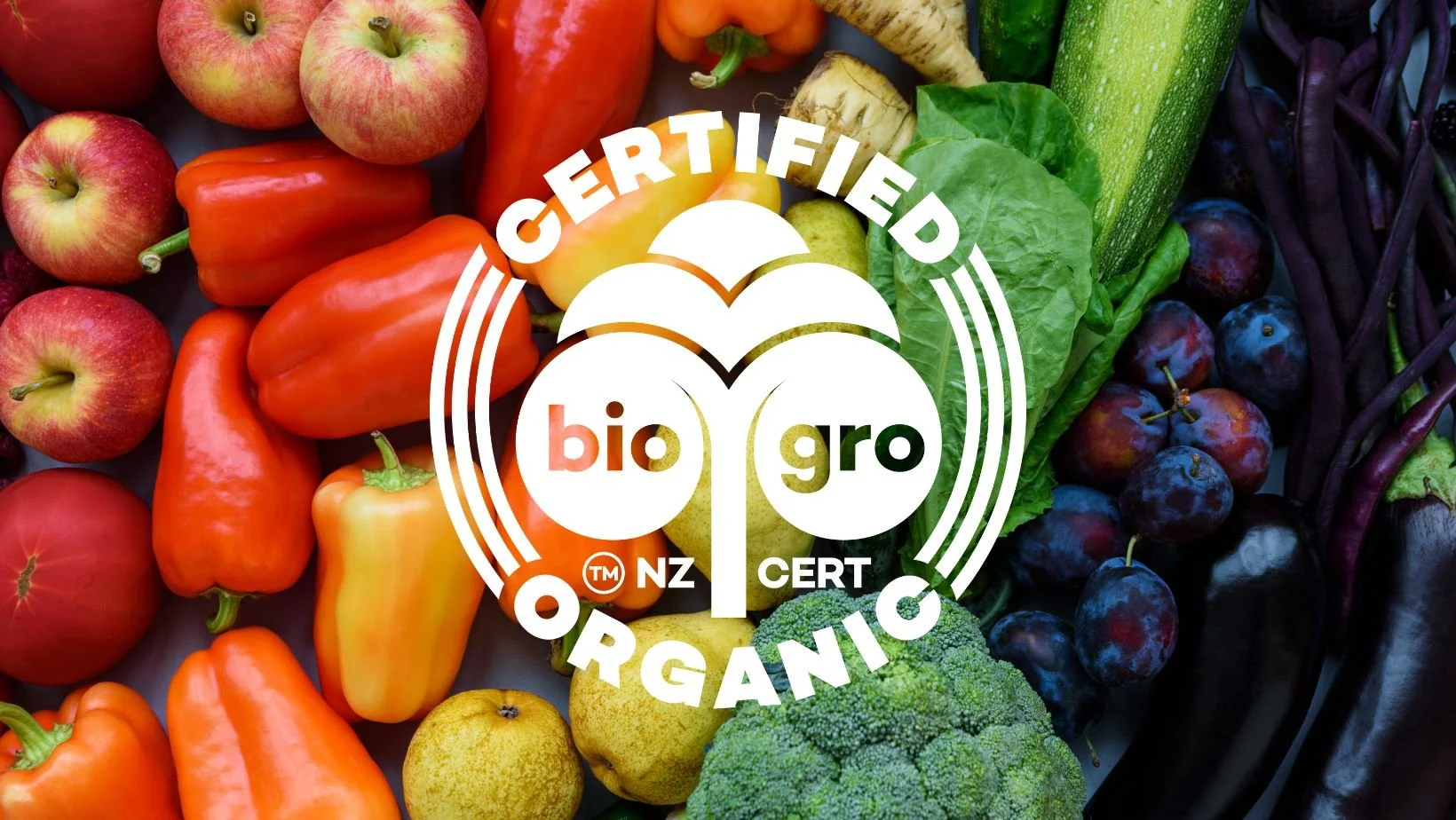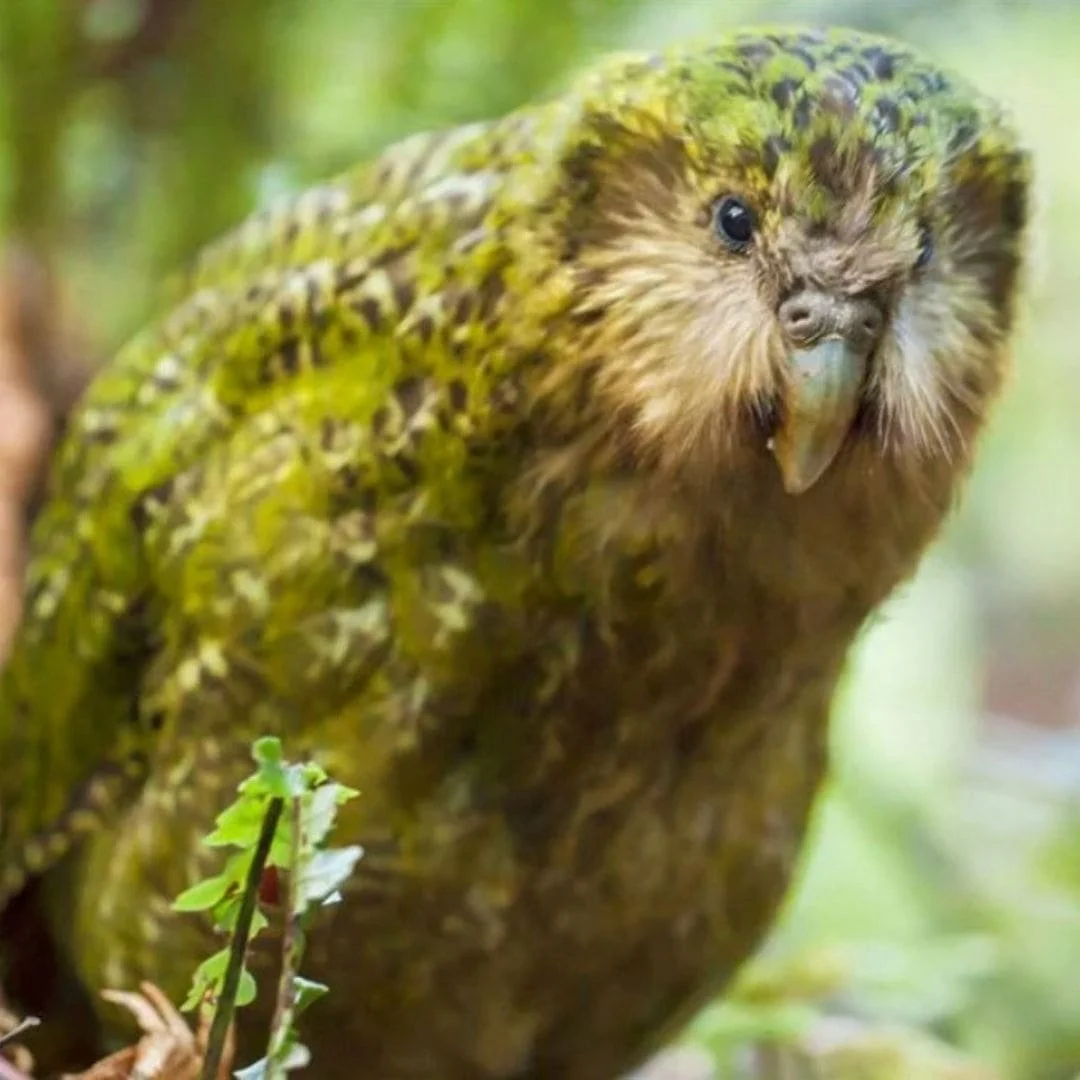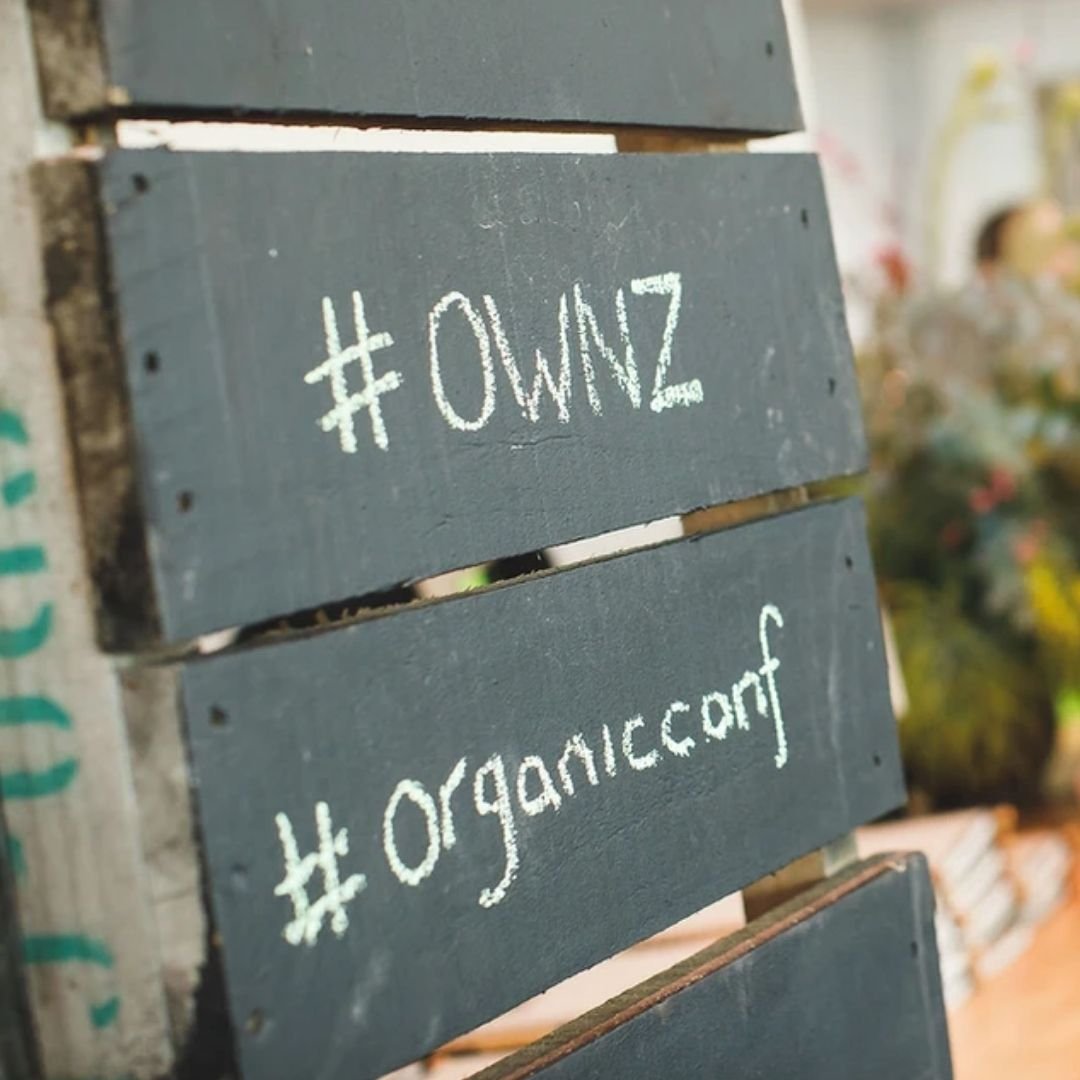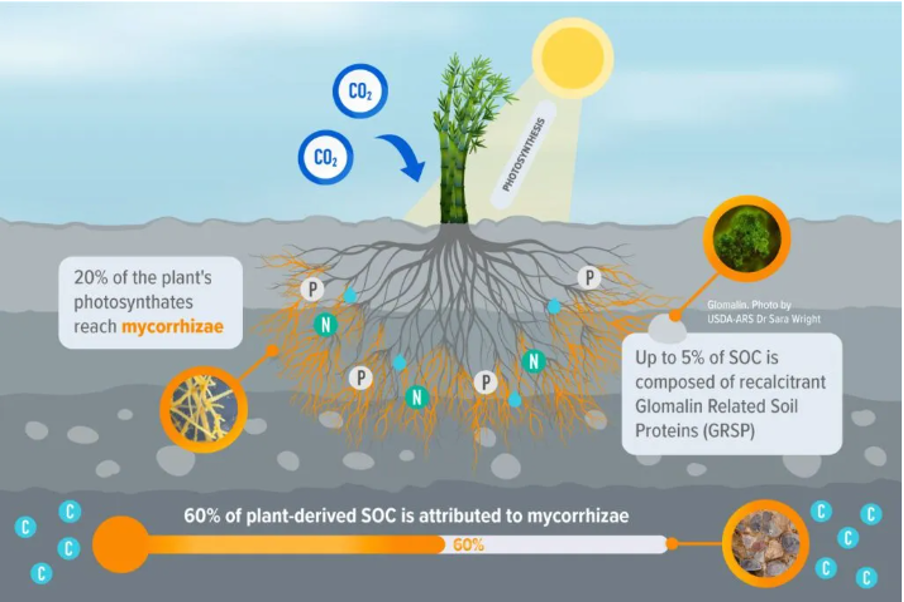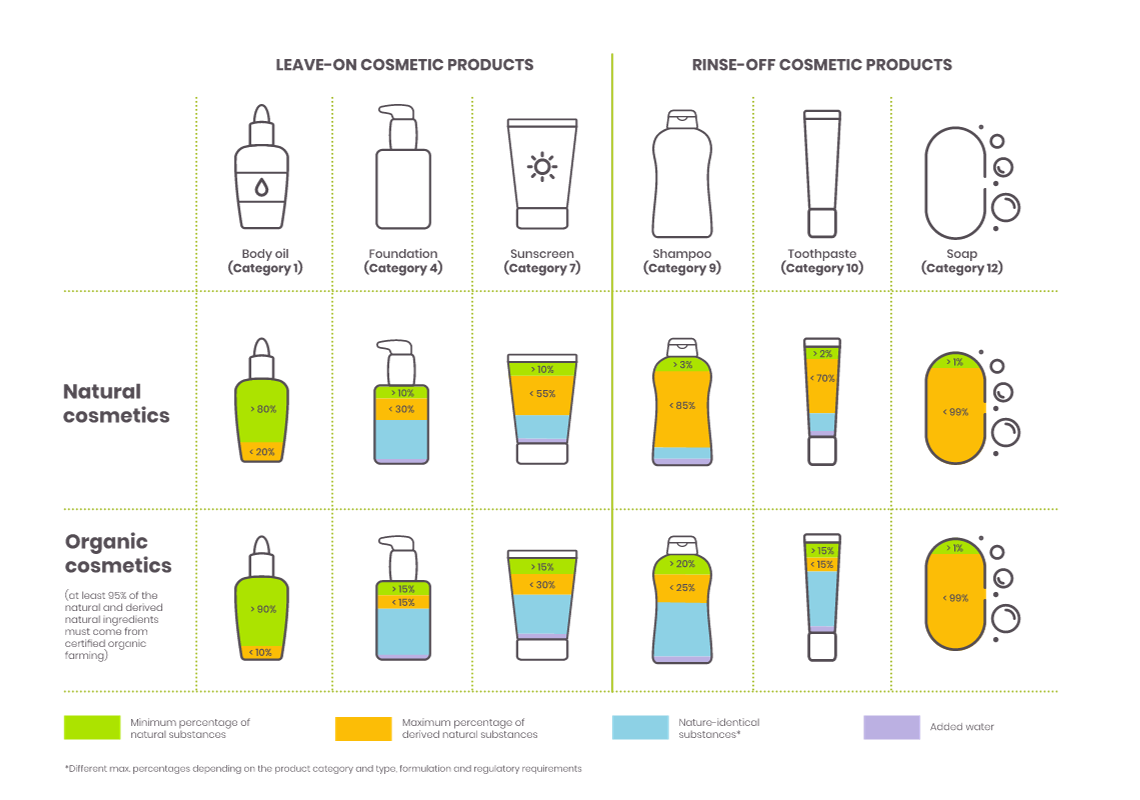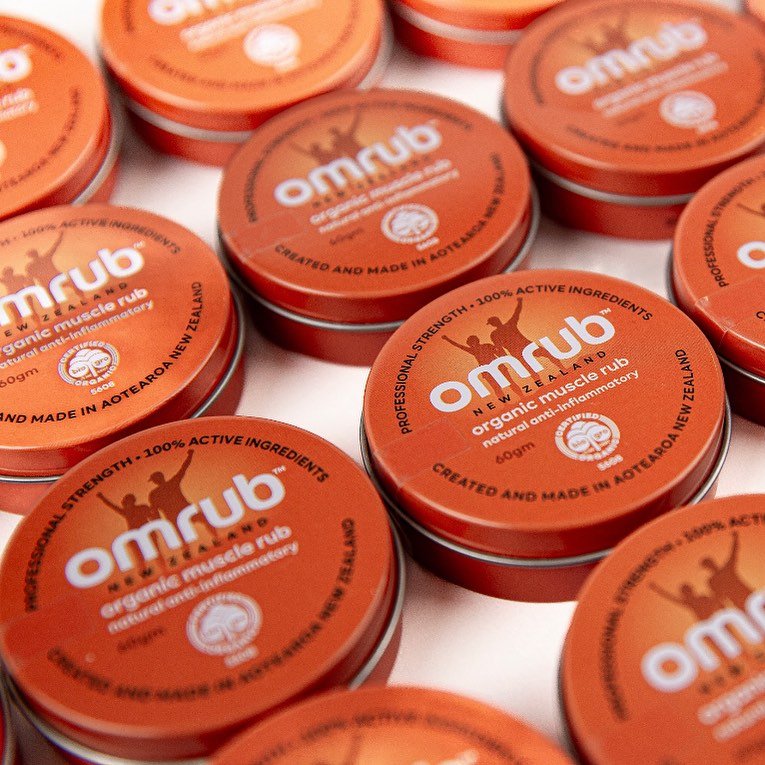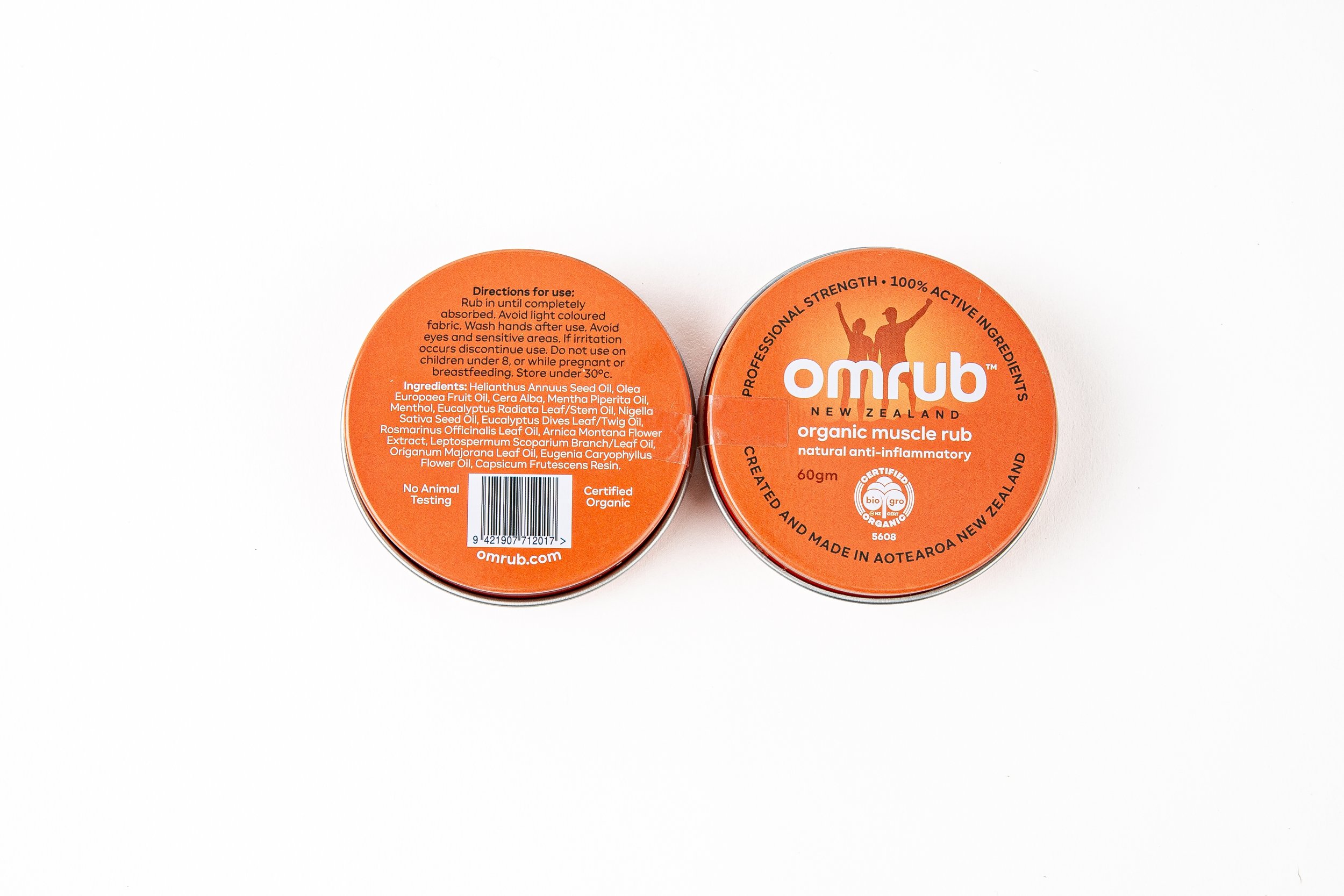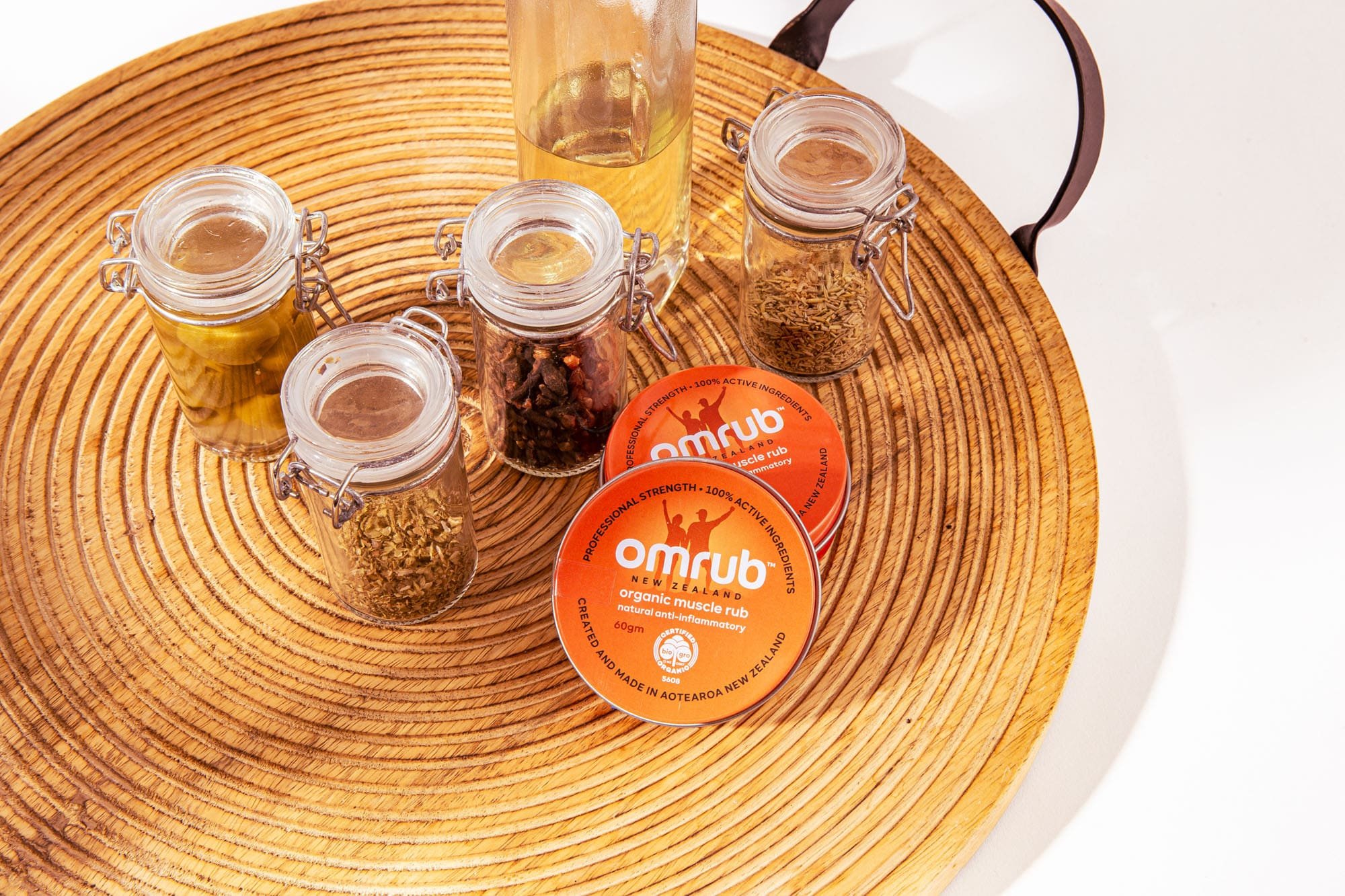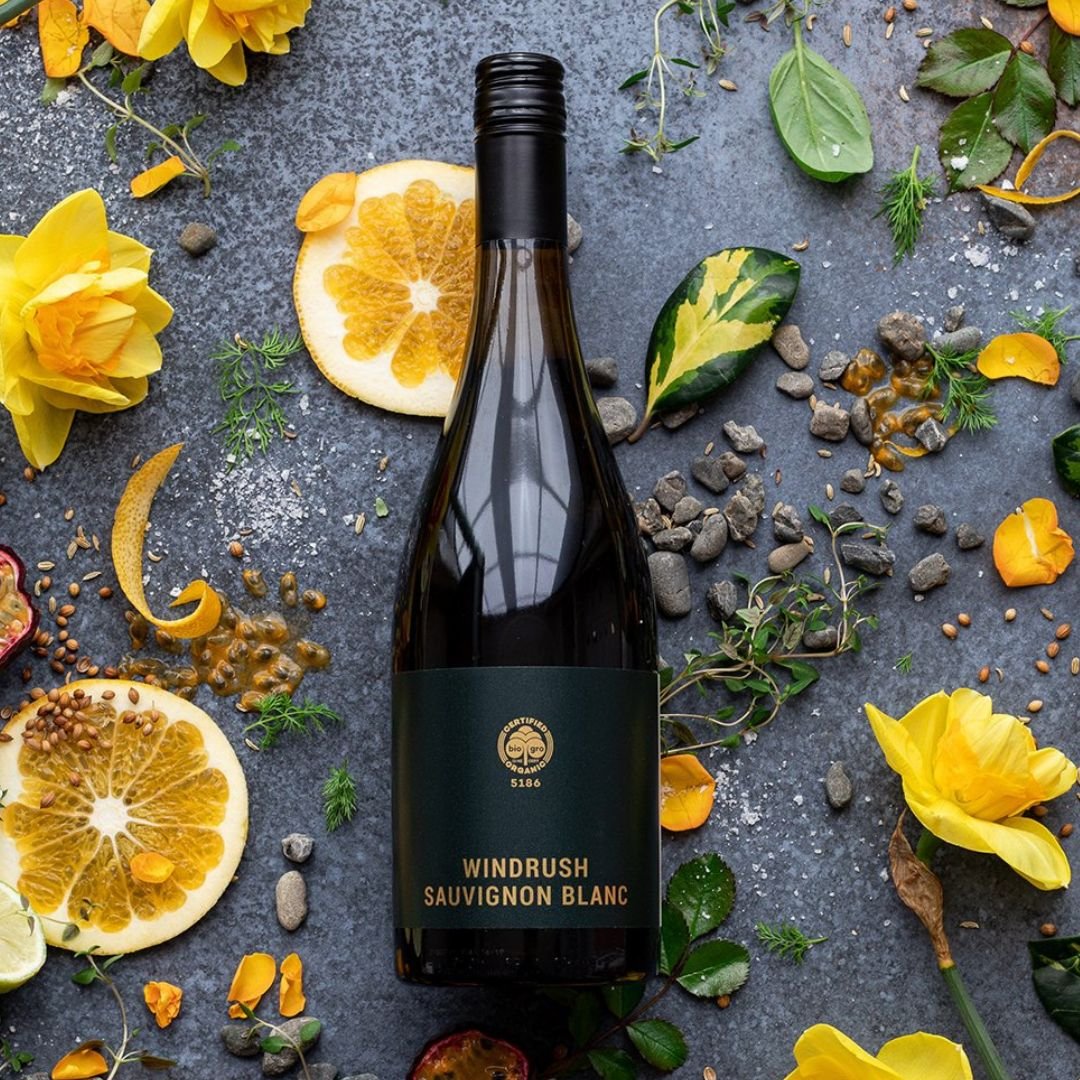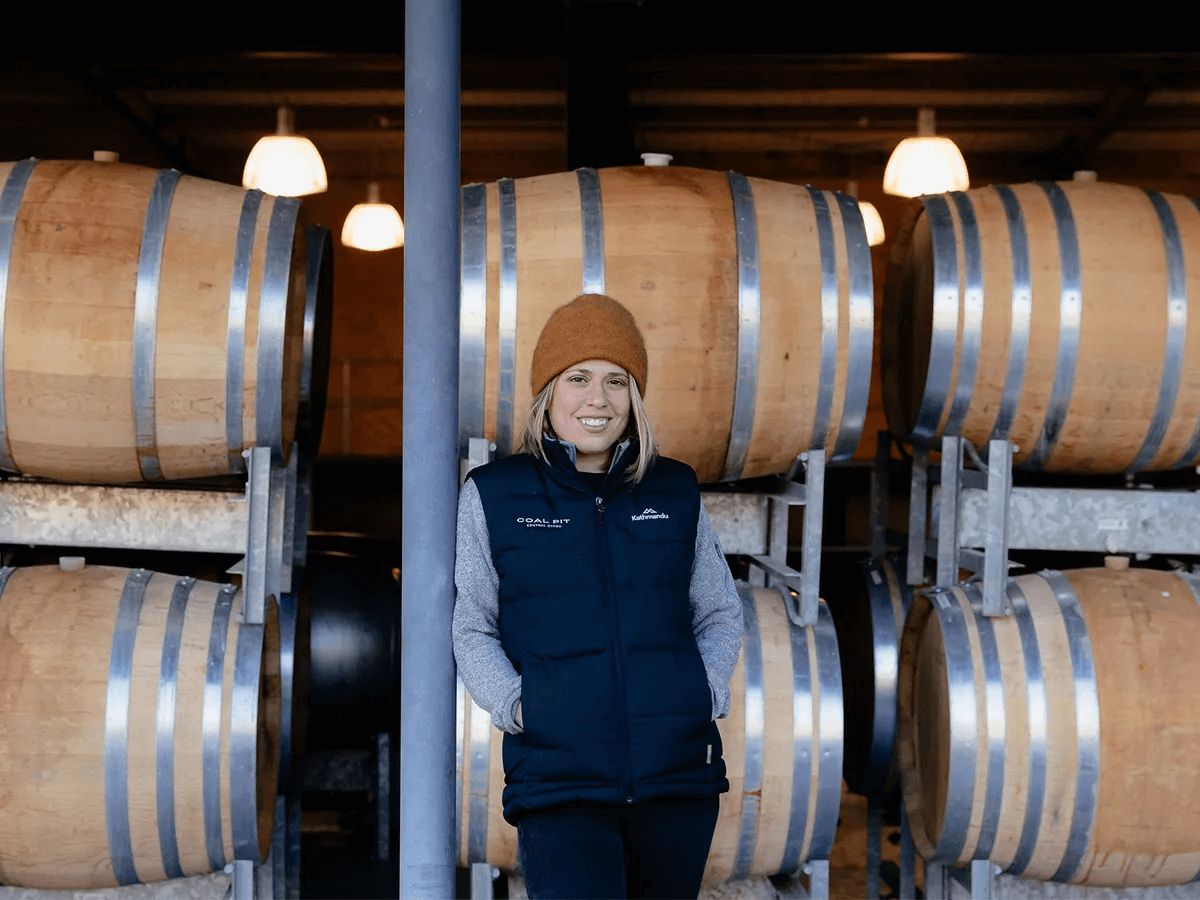Organic Matters
Licensee Spotlight: Penergetic - New Solutions for Old Problems
Penergetic is an innovative business based in Switzerland, distributing a range of agricultural additives globally with an intelligent difference.
As the name suggests, energy plays a crucial role in our products. Energy exchanges occur in most natural agricultural processes. This raises an important question: why not produce agricultural products that can actively stimulate these energy sources to enhance growth? Penergetic has been doing just that, offering solutions to farmers and growers for the past two decades using perfected biostimulation technologies.
Biostimulation harnesses natural energies existing in nature, such as very low energy EMFs or frequencies, to stimulate the native biology that controls most soil-plant processes. By using minimum dosages, Penergetic’s products can address many root-cause issues in agriculture.
Soil & Plants: Penergetic’s solutions can restructure soil, strengthen plants, and increase yields.
Compost, Slurry & Manure: These products accelerate aerobic processes that decompose compost and liquid manure, enhancing the presence of beneficial microorganisms and reducing non-beneficial ones.
Animals: Feed supplements improve animal digestion, well-being, and reduce antibiotic use, leading to higher yields of meat, milk, eggs, and farmed fish.
Water: Penergetic’s technologies stimulate microorganisms in water that naturally restore water cleanliness.
Local Success Stories:
Yield Improvements: Field trials conducted by Dr. Charles Merfield from Lincoln’s Business Husbandry Unit – Future Farming Centre showed an average yield increase of 20% in various vegetable crops.
Compost Quality: Steve Erickson of Chaos Springs Farm (A BioGro Licensee) in Waihi increased beneficial fungi count in his compost by 67%.
Egg Production: Sentry Hill Organics saw a 10% increase in egg yield, equivalent to an additional 120,000 eggs per annum.
These examples demonstrate how Penergetic’s technologies can address yields by tackling root causes.
How does it work?
Penergetic’s products stimulate microbiology in both soil and plants. The soil products stimulate saprophytic microorganisms, responsible for decomposing organic material, while the plant products stimulate symbiotic organisms, such as mycorrhizal fungi. These products are applied separately but work synergistically when used together.
The plant products also stimulate chlorophyll production, increasing photosynthesis. This results in stronger plants with extended root areas, better equipped to handle pests, diseases, and drought. The combined result is more porous, permeable soil with increased natural fertility and reduced dependency on other inputs.
The biological activity gains can be sustained by minimising cultivation, planting cover crops, crop rotation, increasing crop varieties, and reducing chemical inputs. These practices help maintain crucial soil biology.
Penergetic’s products are suitable for all farming formats, from conventional synthetic to biological/regenerative, certified organic, and biodynamic farming. They can assist in transitioning away from applied fertilisers by reducing other additives, minimising the risk of over-fertilisation and harm to reactivated biology.
Penergetic continues to innovate, with new products being developed for wild animal deterrents, chemical fungicide alternatives, and insect repellents. These products aim to be non-toxic and environmentally safe, providing sustainable solutions for modern agriculture.
Penergetic addresses agricultural problems at their root causes, offering practical solutions to enhance productivity and sustainability.
For further details or specific queries, please contact Penergetic.
Do you have a business or product you would like to feature on BioGro’s Blog? Let us know.
Brand NZ: Protecting Integrity with Strong GE Regulations
Discover how New Zealand's strict GE regulations are crucial to maintaining Brand NZ's global reputation for purity, integrity, and sustainability. Learn why preserving GE-free status and upholding tikanga is essential for the country's economic success and ethical standing.
New Zealand’s reputation on the global stage is built on its landscapes, commitment to sustainability, and high-quality products. The global perception of "Brand New Zealand" is closely linked with its image of purity, environmental stewardship, and cultural integrity. In 2022 this global image was valued at around 440 billion NZD, more than the country’s current GDP (last valued in March by Stats NZ at 410 Billion) —a testament to the brand’s economic significance.
Brand NZ: A Legacy of Integrity, Nature, and Tikanga
For over 30 years, New Zealand has marketed itself with three powerful words: integrity, nature, and tikanga, as highlighted by New Zealand Trade and Enterprise (NZTE).
Remember 100% Pure New Zealand?
These values are more than just slogans — they reflect the principles that have shaped Brand NZ and set us apart from other nations. Integrity speaks to New Zealand’s global reputation for transparency, high standards, and reliability in business and governance. Nature underscores the country’s dedication to preserving our extraordinary landscapes and natural resources. Tikanga, a Māori term for customs and traditions, signifies the respect for the Indigenous culture and values woven into our nation's identity.
These values have been at the heart of New Zealand’s global brand, helping to establish the country as a leader in clean, green, and sustainable practices. For decades, consumers worldwide have associated New Zealand with products that are pure, natural, and environmentally friendly; a perception that is now more valuable than ever in a world increasingly concerned with sustainability.
“In 2022 ‘Brand NZ’ was valued at around 440 billion NZD, more than the country’s current GDP.”
The Role of Tikanga and Treaty Obligations
The proposed changes to genetic engineering (GE) regulations threaten Tikanga; a principle central to iwi, New Zealand as a culture and how we have marketed ourselves to the world. Tikanga, representing Māori customs and values, is integral to the ethical foundation of New Zealand’s governance and business practices. Any decision to alter GE regulations without proper engagement with Treaty partners would violate the spirit of Te Tiriti o Waitangi and undermine New Zealand’s commitment to respecting Māori rights and values. This could lead to growing global awareness of New Zealand’s failure to uphold its Treaty obligations, damaging its reputation as a country that values good governance and ethical practices.
It is crucial to recognise that New Zealand’s free trade agreements since 2001, including the NZ-EU Free Trade Agreement, specifically preserve the unique status of Te Tiriti o Waitangi and acknowledge the importance of Tikanga. By disregarding these obligations in the context of GE regulations, New Zealand risks alienating not only its Treaty partners - but also its international trading partners who value the country’s commitment to integrity and ethical standards.
Organic & GE-Free Status: A Vital Point of Difference
One of the most distinctive and potent aspects of Brand NZ is its status as one of only two countries in the world with total GE-free agricultural products. This GE-free status is not merely a technicality. It is – or should be - a cornerstone of New Zealand’s brand identity, providing a clear point of difference in a global market where increasingly consumers prefer natural, non-GMO and organic products, and have expectations of transparent and sustainable supply chains.
In recent years, organics has been one of the few industries in New Zealand that has shown reliable growth, further underscoring the demand for GE-free and organic products. New Zealand’s GE-free status ensures that its agricultural products are perceived as safer, more natural, and of higher quality—a perception that allows the country to command premium prices in international markets.
The global market for non-GE products is experiencing significant growth, with estimates ranging from 492 billion to 1.2 trillion NZD in 2023 alone, and this trend is forecasted to continue rising. This expanding market presents an opportunity for New Zealand’s agricultural sector. In line with this growing demand, BioGro has found that U.S. importers are increasingly requiring non-GMO certification when placing orders from New Zealand producers. However, under the proposed changes to New Zealand’s GE regulations, these certifications could become impossible to obtain, at least without prohibitively expensive lab testing,
The new regulations would consider gene editing—the use of new breeding techniques (NBTs) equivalent to natural crossbreeding, which would mean the exporters would be unable to produce the certification that is now becoming more regularly demanded. Without these certificates, our exporters would face limitations as to who they could export to – losing out on money and opportunities.
The Danger of Changing GE Regulations
Given the importance of GE-free status to Brand NZ; it would be a mistake to change the agricultural biotechnology regulations. Such a move would not only risk diluting the country’s hard-earned reputation for purity and sustainability but could also lead to a loss of trust among global consumers. For over three decades, New Zealand has built its brand on the promise of natural integrity. Any shift away from this promise could undermine the very foundation of Brand NZ, potentially eroding its market position and economic value.
The proposed changes to these regulations, which would equate gene editing with natural crossbreeding, could have far-reaching consequences. NBTs, such as CRISPR/Cas, allow precise modifications to be made to an organism’s DNA, creating new plant varieties with targeted traits in a single generation—something that traditional plant or animal crossbreeding, which relies on natural selection over multiple generations, cannot achieve. Although NBTs offer efficiency and precision, they fundamentally alter the organism’s genetic makeup in ways that would not occur naturally.
The idea that NBTs are equivalent to natural crossbreeding has been challenged by a study published in May 2024 in Nature Genetics. According to the study, the use of CRISPR/Cas causes unintended genetic changes, that are different to random mutations. Major structural changes in chromosomes occur much more frequently in the genomic regions targeted by genetic engineering than would have happened naturally.
“For over three decades, New Zealand has built its brand on the promise of natural integrity. Any shift away from this promise could undermine the very foundation of Brand NZ, potentially eroding its market position and economic value.”
Maintaining strict agricultural GE regulations is not just about adhering to a standard - it is about preserving the essence of what makes Brand NZ so valuable. Any relaxation could compromise the brand's perception and weaken its competitive advantage in a global market where authenticity and natural purity are increasingly prized.
Brand New Zealand is a powerful global asset, deeply rooted in values of integrity, nature, and tikanga. For over 30 years, New Zealand has marketed itself as a leader in natural, sustainable practices, and its GE-free status has become a vital part of our identity. As the world becomes more conscious of environmental and health issues, New Zealand’s commitment to strong GE regulations is not just wise—it is essential.
The proposed changes would undermine the integrity of organic and non-GMO certification and could disqualify New Zealand producers from accessing lucrative markets.
For instance, U.S. importers, who are increasingly demanding non-GMO certification, may no longer be able to source products from New Zealand that meet their criteria if gene-edited crops are considered non-GMO under the new regulations. This shift would not only jeopardise New Zealand’s competitive advantage in the global non-GMO market but could also erode the country’s hard-earned reputation for producing natural, pure agricultural products.
The continued growth of the organic industry in New Zealand – with very little support from the government – the multi-billion-dollar global non-GMO market and the increasing demand for non-GMO certification highlights the importance of maintaining clear and stringent agricultural GE regulations.
Loosening these regulations not only threatens New Zealand’s unique position in this market: risking both its global reputation and economic success. It also undermines the foundational principles of Tikanga and the country’s obligations under Te Tiriti o Waitangi.
By preserving strict GE regulations and upholding its commitment to Tikanga, New Zealand can continue to move forward and onto the global stage as a leader in natural and sustainable agriculture, ensuring that Brand NZ remains synonymous with quality, trust, and cultural integrity for generations to come.
Resources:
The Challenges Certified Organic Farming Faces in the Age of Genetically Engineered Crops
Discover the significant risks certified organic farming faces with the introduction of genetically engineered crops, from cross-contamination to increased costs, supported by scientific studies.
Certified organic farming, known for its commitment to sustainability, faces new challenges in New Zealand with the potential introduction of genetically engineered (GE) crops. These challenges pose significant risks to the integrity, economic viability, and ecological sustainability of organic farming.
What is Genetic Engineering?
Genetic engineering is a modern biotechnology that manipulates an organism's DNA to achieve desired traits.
Unlike traditional selective breeding, which mates organisms with favourable characteristics over generations, genetic engineering involves gene splicing.
This process allows scientists to insert, delete, or alter genes within an organism's genome. By doing so, they can create crops with specific traits such as pest resistance, herbicide tolerance, or improved nutritional content. Many current GMO plants are glyphosate resistant - allowing increased pesticide spraying.
Health Concerns: Potential Dangers of GMOs
Genetically modified organisms have been found to pose potential health risks. Studies have indicated that consuming GMOs may increase the risk of weight gain and immune system issues among other health problems. Research by Seralini et al. (2012) suggested that long-term consumption of GMOs could lead to adverse health effects, including liver and kidney damage, and increased risks of tumours in animal studies.
Cross-Contamination: A Threat to Certification
One of the most pressing concerns for organic farmers is the risk of cross-contamination. Pollen drift from GE crops can cross-pollinate with organic crops, leading to genetic contamination. This contamination can be devastating, as it may result in organic farmers losing their certification and facing financial losses. For instance, GE ryegrass could make organic dairy, beef, lamb production, and organic honey almost impossible. There have been multiple studies done showing that contamination is a common problem for countries that produce GMO products.
Market Value: The Impact on Organic Products
Consumers who buy organic products generally avoid genetically modified organisms (GMOs), and the presence of these traits can lead to a loss of trust and a decrease in market demand. This is particularly concerning, not just for livestock and dairy farming as previously mentioned, but vineyards, where even a small amount of contamination can be problematic. Research by Carter and Gruère (2003) has shown that the market value of organic products can be severely impacted by the presence of GE traits. This is unsurprising, as to be certified organic, a product must not contain GMOs.
Legal and Liability Issues: A Growing Concern
Organic farmers may also face legal challenges and liability issues if their crops are found to contain GE traits, even if the contamination was unintentional. This is compounded by the fact that most of the seeds are owned by foreign companies, and New Zealand farmers, who haven’t purchased GMO seeds, are still liable for licensing fees. This has been played out multiple times overseas. The legal battles that can arise from such situations can be costly and time-consuming, further straining the resources of organic farmers. A study by Marvier and Van Acker (2005) highlights the legal complexities and liability issues associated with unintended GE contamination.
Pesticide Drift: Contaminating Organic Fields
GE crops usually require specific herbicides and pesticides – most notably glyphosate, known more commonly as roundup, which can drift onto nearby organic fields. This pesticide drift can contaminate the crops and soil, jeopardising the organic certification of the affected fields. Current polluter pays laws aren’t enforced consistently, leaving organic farmers vulnerable to contamination and its repercussions. Research by Olszyk et al. (2004) has shown that pesticide drift from GE crop fields can pose significant risks to non-GE crops.
Biodiversity Loss: Threatening Ecosystems
GE crops can lead to reduced biodiversity, affecting the resilience of ecosystems and the variety of crops available. Biodiversity is crucial for maintaining healthy ecosystems and providing a buffer against pests and diseases. The monoculture practices often associated with GE crops can diminish this diversity, making ecosystems more vulnerable and less sustainable in the long run. A review by Pellegrino et al. (2018) highlights the negative impact of GE crop cultivation on biodiversity. New Zealand has one of the most unique ecosystems in the world - introducing GE organisms could threaten this biodiversity by creating new, invasive species that outcompete native plants and animals.
Increased Costs: Financial Burdens on Farmers
Organic farmers may incur costs for testing their crops to ensure they are free from GE contamination. They may also need to implement buffer zones and other protective measures to safeguard their fields from contamination. These additional expenses can strain tight budgets, making it more difficult to remain economically viable. The financial burdens associated with mitigating the risks of GE contamination are yet another hurdle for organic farmers. A study by Brookes and Barfoot (2017) discusses the economic impacts on non-GE farmers dealing with contamination risks.
Safeguarding Organic Farming: Moving Forward
The introduction of genetically engineered crops poses challenges to the integrity, economic viability, and ecological sustainability of certified organic farming. Organic farmers face risks from cross-contamination and market devaluation to legal issues, pesticide drift, biodiversity loss, and increased costs. Policymakers, consumers, and the agricultural community must address these challenges to safeguard the future of organic farming.
Organic farming represents a commitment to sustainability and integrity. As we navigate the complexities of modern agriculture, we need to support organic farmers in overcoming these challenges and ensuring the continued availability of truly organic products.
Advocacy and Support: Take Action
Your awareness and advocacy can make a difference in preserving the integrity of organic farming for future generations. Here’s how you can help:
Write to Your Local MP: Express your concerns about the impact of GE crops. Advocate for stricter regulations and enforcement of ‘polluter pays’ laws and the continued strict assessment and regulation of genetic engineering in NZ.
Donate to OANZ: Support organisations like Organic Aotearoa New Zealand (OANZ) that promote and protect organic farming. Your donations can help fund research, advocacy, and educational initiatives.
Spread the Word: Share this information with your community. Educate others about the risks of GE and the importance of supporting sustainable agricultural practices.
Together, we can help ensure that organic farming remains a viable and thriving option for future generations.
Resources:
Health:
Seralini, G. E., et al. "Long term toxicity of a Roundup herbicide and a Roundup-tolerant genetically modified maize." Food and Chemical Toxicology 50.11 (2012): 4221-4231
GMO food can cause obesity – Report
Pesticides in paradise: Hawaii's spike in birth defects puts focus on GM crops
Cross-Contamination:
Transgenics contaminate a third of Brazil’s traditional corn in semiarid region
Mexican Corn Contamination Confirmed
Scientists uncover risks in GM oil seed rape
Hay contaminated with Monsanto GMOs rejected for export
Feral 'Roundup Ready' GM alfalfa goes wild in US West
Market Value + Consumer Demand:
Carter, C. A., & Gruère, G. P. "Mandatory labeling of genetically modified foods: Does it really provide consumer choice?" AgBioForum 6.1&2 (2003): 68-70
EU bans GM-contaminated honey from general sale
Survey shows New Zealanders feel they lack information about gene-edited food
Gen Z shoppers will ‘be the greenest shopper yet,’ Non-GMO Project shares in latest awareness data
Mandatory labeling on genetically engineered foods may reduce customer purchases
Pesticide Drift:
Olszyk, D., et al. "Impacts of genetically modified crops on pesticide use in the US: the first sixteen years." Environmental Sciences Europe 24.1 (2012): 24
Missouri Farmer Wins $265 Million Verdict Against Monsanto
Law + Liability:
Marvier, M., & Van Acker, R. "Can crop transgenes be kept on a leash?" Frontiers in Ecology and the Environment 3.2 (2005): 99-106).
Organic Farmer Dealt Final Blow in Landmark Lawsuit Over Monsanto’s GMO Contamination
Ecosystems:
Pellegrino, E., et al. "Impact of genetically engineered maize on agronomic, environmental and toxicological traits: a meta-analysis of 21 years of field data." Scientific Reports 8.1 (2018): 3113
Expert Feature: Professor Carolyn King - invasive mammals
Increased Costs:
Brookes, G., & Barfoot, P. "Economic impact of GM crops: the global income and production effects 1996–2015." GM Crops & Food 8.1 (2017): 1-18
Get off my lawn! Organic farmers just can’t get along with GMO-growing neighbors
GM cotton really is helping to drive Indian farmers to suicide
New Trial Results: Biostart TripleX Suppresses Sclerotinia in Kiwifruit
Recent trials reveal that Biostart TripleX, an organic biofungicide, significantly reduces Sclerotinia in kiwifruit by 45%. Explore the findings and benefits of using TripleX in your orchards.
When it comes to protecting kiwifruit from diseases, innovation is key. Recent trials have shown that Biostart TripleX, a BioGro-certified organic biofungicide, is highly effective in suppressing Sclerotinia. This promising development offers kiwifruit growers a reliable solution to reduce the incidence of this troublesome disease by an impressive 45%.
Sclerotinia, a fungal disease, poses a significant threat to kiwifruit growers – this is a big deal as kiwifruit is New Zealand's largest horticultural export, making up 55% of the total horticulture export revenue in 2023, the equivalent of $2.5 billion. It can cause considerable damage by leading to aborted fruitlets and scarred fruit, directly impacting yield and quality. For certified organic kiwifruit growers - where synthetic pesticides are prohibited - an effective alternative is key.
Biostart's TripleX, already known for its efficacy in grapes and controlling sooty mould in kiwifruit, has now proven its worth in tackling Sclerotinia. The recent trials highlighted that TripleX could reduce the incidence of Sclerotinia by 45%, significantly lowering the number of aborted fruitlets and scarred fruit. This breakthrough paves the way for healthier, more robust kiwifruit harvests.
TripleX is a biofungicide certified for organic production, that leverages naturally occurring microorganisms to combat fungal diseases. By enhancing the plant's natural defences and creating an inhospitable environment for the fungus, TripleX ensures a reduction in disease occurrence. This method not only protects the fruit but also supports sustainable farming practices.
In recent trials, kiwifruit treated with TripleX showed a 45% reduction in Sclerotinia incidence. The trials demonstrated two key benefits:
Lowering Aborted Fruitlets: By reducing the number of aborted fruitlets, TripleX ensures a higher yield of healthy fruit.
Reducing Scarred Fruit: With fewer scars, the quality and marketability of the fruit increase, benefiting growers economically.
These results validate TripleX as a tool in the fight against Sclerotinia, offering an organic solution that aligns with sustainable agriculture practices.
For more information on the full trial results visit biostart.co.nz/organic/
If you've conducted trials or have insights to share, regarding products certified for organic production, please reach out to us. Let's work together to enhance organic horticulture practices and achieve even better crop outcomes.
Organic Week 24 - Ask Me Anything with BioGro
Are you curious about the ins and outs of organic certification? Wondering whether organic certification is right for you or your business? Look no further! Today, we're thrilled to answer the questions, asked throughout Organic Week. Get ready to dive into the world of organics and organic certification. Let's explore what organic certification really is, and how you can get organically certified.
Are you curious about the ins and outs of organic certification? Wondering whether organic certification is right for you or your business? Look no further!
Today, we're thrilled to answer the questions, asked throughout Organic Week. Get ready to dive into the world of organics and organic certification. Let's explore what organic certification really is, and how you can get organically certified.
What is organic certification?
To call an apple an organic apple, the apple orchard needs to be managed in a way that meets the organic standards.
From the BioGro Organic Standards Module 1, Section 2 Principles of Organic Production
2.1 Organic production
Organic production includes such terms as biological husbandry, eco-agriculture, natural, sustainable and bio-dynamic. Organic production seeks to produce food of optimum quality and quantity, by holistic management of productive ecosystems. This approach endeavours to make the ecosystems sustainable and non-polluting of the environment while providing a sustainable income to the producer, families and communities. Some of the main principles and methods that are employed aim to:
a. Foster beneficial processes and interactions such as occur in natural ecosystems, thus encouraging internal stability rather than heavy reliance on external control measures.
b. Reduce external control to the absolute minimum required for maintaining the chosen state of production. Inputs used aim to work as far as possible in conjunction with natural cycles, rather than trying to dominate such cycles.
c. Achieve cycles/flows of nutrients and materials that have as few losses as possible. This requires the conservation and recycling of nutrients and organic material.
d. Sustain and enhance the fertility and life-supporting ability of the production medium, including its biological, physical and chemical components. For land-based production systems, great emphasis is placed on the importance of soil organic matter, and soil flora and fauna.
e. Minimise any deleterious environmental effects of particular management practices, including any that may reduce the natural diversity to the detriment of plant and wildlife habitats.
f. Ensure the ethical treatment of animals.
g. Minimise the use of non-renewable resources
2.2 Organic agriculture
Organic agriculture is based on appropriate stocking rates, consideration of animal welfare, sound rotations using diverse stock and cropping strategies with the extensive but rational use of animal manure and other vegetative residues, and the use of appropriate cultivation techniques. It aims to avoid the use of soluble and synthetic fertilisers and synthetic pesticides and prohibits the use of genetically modified organisms. Similar considerations apply, where appropriate, to aquaculture, fishing, and wild harvesting.
BioGro wrote some of New Zealand’s first organic standards, and the standards are regularly reviewed to ensure that they align with the standards of overseas countries to allow producers to export their products as efficiently as possible.
2. Isn’t organic certification just a marketing scam?
Organic certification is regulated in many countries and has been for 20 years in places like Canada, the USA, the UK, and Japan, and over 30 years in the European Union. Over 90 countries around the world have regulations about what can use the word organic on a product label.
So no, it isn’t a marketing scam. Greenwashing is making a marketing claim that can’t be backed up with evidence. Organic products need to be compliant with national regulations.
BioGro has been accredited by the International Organic Accreditation Service to certify to the BioGro standards and the International Federation of Organic Agricultural Movements Organic Standards.
“Greenwashing is making a marketing claim that can’t be backed up with evidence. Organic products need to be compliant with national regulations. “
These countries have established formal government standards, regulations, and certification for organic farming and organic food. Here’s a breakdown by region:
Overall, organic agriculture continues to grow globally, promoting sustainable practices and healthier food choices.
3. Is organic farming/growing really that different from conventional farming? Aren’t pesticides still used?
According to the BioGro Standards, Organic farming is regenerative farming, and it focuses on feeding the soil so that the plants are healthy, reducing the need for pesticides or herbicides. Yes, organic farming allows for non-synthetic pesticides and herbicides to be used in crop management. These are mostly biological products or products that break down in the environment quickly and don’t leave a residue on fruit or vegetables.
These are a last resort, as organic farmers need to demonstrate that they have first tried to use biological, mechanical or cultural methods to deal with pest, disease and weed issues, before using pesticides or herbicides.
4. Is organic production economically feasible?
Yes, it is economically feasible for some or most crops and animal production systems. BioGro has over 850 commercial licensees who continue to remain certified year after year. Over 30 per cent of BioGro’s licensees have been certified organically for 15 years or more - with the longest being certified for 40.
There are also over 4.5 million producers worldwide and that number is growing.
5. I’m already farming/growing regeneratively, do I really need organic certification?
You don’t need to be certified organic to make a regenerative label claim - yet.
However, most overseas markets and major retail stores don’t recognise regenerative agriculture that doesn’t have some kind of verification or standards. All major overseas markets have and recognise organic, and this is the best way to get paid for your regenerative practices.
6. How long does it take to get organic certification?
It takes three years to convert to organic production for growers and producers.
For processed product manufacturers, it takes anywhere from 3-6 months depending on the number of products and how quickly recipes can be approved. All suppliers and ingredients must be assessed and approved before certification.
To find out more about each specific process - check out our certifications programmes.
7. I’m interested in getting organically certified, but I know regulations are coming. Should I just wait?
If you are a grower, I wouldn’t wait. MPI has made it clear in consultations that they want currently certified operators to be able to smoothly transition to the New Zealand National Organic Standard. The earlier you get certified the earlier you can get through the three years of conversion to full organic.
8. What do you suggest a business looking to convert to organic certification do first?
Talk to someone who is already certified and doing what you want to do. Organic Week is a great way to go out and visit organic farms that want to encourage others to go organic.
Have questions that weren’t answered here? Check out our FAQs on organics and organic certification, and don’t hesitate to get in contact
Voices for a Greener Tomorrow: Celebrating International Women's Day 2024
On International Women's Day, we're centring the voices of women in the vital realms of organics and sustainability. Despite often being overshadowed by male counterparts in leadership roles, women play a pivotal role in driving positive change. Through their wisdom, passion, and dedication, they contribute immensely to the advancement of eco-friendly practices.
In this post, we're spotlighting inspiring quotes from women leaders and advocates in the field, showcasing their invaluable perspectives and insights. Let's celebrate these trailblazers, empowering their voices and acknowledging their essential role in shaping a more sustainable future for our planet.
1. Dr Jessica Hutchings (Ngāi Tahu, Ngāti Huirapa, Gujarati), Māori researcher and author
“Soils are the silent ally in our food systems, a crucial part in living economies. They provide an anchor point for our identity and place.” – Te Mahi Oneone Hua Parakore
2. Emily King, Food Systems Expert & Director of Spira, Author
“If we created our food system with a noble goal like feeding people healthy affordable food that’s made and grown well, we would shift the system.” - Refood
3. Dr. Jane Goodall, Ethologist, Advocate, Author
“Someday, we shall look back on this dark era of agriculture and shake our heads. How could we have ever believed that it was a good idea to grow our food with poisons.”
4. Tiffany Tompkins, OANZ CEO
“Growing organic kai will help feed our nation, address broken distribution systems, increase economic vitality across the organic ecosystem, and allow our local environment and biodiversity to thrive”
5. Karen Mapusua, IFOAM Organics International Director
“Food security, protecting our environment and reefs – they’re the things that are really the heart and soul of the organic movement in the Pacific region”
6. Rachel Carson, Marine biologist, Writer, and Conservationist
”Man is a part of nature, and his war against nature is inevitably a war against himself.” - Silent Spring
7. Vandana Shiva, Environmentalist, Food Sovereignty Advocate, and Author.
“Organic farming is not just about producing food without chemicals. It is about nurturing the soil, the ecosystem, and the life that we depend on.”
8. Nicole Masters, Agroecologist, Systems thinker, Author, and Educator.
“Soil is the most important ecosystem, linked to every function of the planet.” – For the love of Soil
9. Maria Rodale, Organic Advocate, Author, Former CEO of Rodale, Inc.
“We must make organic the conventional choice and not the exception available only to the rich and educated.” – Organic Manifesto: How Organic Farming Can Heal Our Planet, Feed the World and Keep Us Safe.
10. Anne Gibson, The Micro Gardener
“If we expect to buy perfect-looking produce in a one-stop-shop supermarket, every day of the year, we are supporting the major retailers who just want to make money. Choosing local, seasonal, chemical-free, and homegrown food supports our health, local communities, and farmers.”
As International Women's Day concludes, let's carry forward the spirit of appreciation for the invaluable contributions of women every day. Whatever the field, their dedication and resilience shape our world. Let's honor and support them in their endeavors, fostering equality and empowerment.
January & February Good News Round Up
Discover the latest highlights: January and February's good news from New Zealand and beyond! Delve into the positive updates in organics, climate change, and sustainability making headlines locally and globally.
Montana Supreme Court upholds landmark climate ruling that said emissions can’t be ignored.
Fonterra’s southernmost factory shifts from coal to electricity – removing the equivalent of 20000 cars worth of emissions per year.
EU fossil fuel CO2 emissions hit a 60-year low.
BioGro Licensee Coal Pit Wine was one of four New Zealand wines to make the list of the World’s Best Sommelier Selection.
The planet is currently on track in 2024 to see its first emissions drop, outside of the pandemic, in 2024.
As of 1 January 2024, organic waste recycling is mandatory in France under new 'compost obligatoire' rules. According to the European Commission, food waste is responsible for about 16 percent of the total emissions from the EU food system.
Iwi leader Mike Smith has won the right to sue seven big polluters for their role in causing climate change.
Organic production and producers increased by over 25% according to IFOAM's latest report released in February.
The Idaho Senate shot down a bill that would’ve given more legal protection to pesticide manufacturers.
Have a piece of good news to share? Get in contact!
2023 Good News Round Up
2023 was marked by extreme heatwaves, devastating floods, and constant headlines heralding doom. It was a year that many would like to forget, filled with despair and uncertainty.
That being said, despite the lows, there were still a lot of remarkable achievements throughout both Aotearoa and the world that are worth acknowledging.
1. Researchers at the University of British Columbia discovered how to filter microplastics from water using biodegradable forest byproducts such as bark and wood dust.
2. BioGro Licensee Rippon Vineyard was named one of the top 20 vineyards to visit in the world.
3. Renewables will provide half the world’s electricity by 2030, according to a report by the International Energy Agency.
4. A few New Zealanders might have been a little salty about John Oliver’s election interference in Forest and Bird’s “Bird of the Century, but, the publicity brought more than $600,000 donated to the charity during the competition – more than six times what the 2022 competition raised!
5. Portugal ran on 100% renewables for six days in a row! For nearly a week, the country of 10 million met customer needs with wind, hydro, and solar.
6. The Organic Products and Production Bill passed its 3rd reading on Thursday 30th of March
7. In a historic referendum, Ecuadorians voted to halt drilling in a protected region of the Amazon. Sixty percent of voters said ‘no’ to oil exploration in Yasuní National Park.
The territory spans 12.5 million acres (NZ’s total land area is 26.8 million hectares) and contains Ecuador’s largest crude oil reserves.
8. A ban on single-use plastics – including single-use plastic tableware such as cups, plates, and cutlery, plastic produce bags, and plastic labels on fruits and vegetables – came into effect on July 1, making Aotearoa the first country to expand the plastic bag ban.
9. A joint Spanish and American research team found that people living near green spaces are, on average, two and a half years biologically younger than those who do not.
10. BioGro Licensee Zealong won gold for its Aromatic Oolong flavour, a highly commended award for its Aged Oolong, and a “Lifetime Achievement Leafie” for Zealong itself, in recognition of the company’s decades-long contribution to the advancement of tea knowledge and appreciation at the UK Tea Academy’s annual awards, also known as the “Leafies.”
11. Organic food sales in the United States broke through USD 60 billion for the first time, according to data released by the US Organic Trade Association.
12. The Organic and Biodynamic Winegrowers Conference was back (and in full swing) after a few years of delays due to COVID-19.
13. Research finds climate change strikes are working - Some 30 percent of Swiss residents surveyed said they had made changes to their transportation, buying, and recycling habits in the wake of Greta Thunberg’s Fridays for Future climate strike protests.
14. Kākāpō returned to the mainland for the first time in 40 years.
15. Youths scored a climate victory in court in Montana, USA which ruled that young people have a right to live in a clean environment.
16. In May, a massive conservation effort between Save the Kiwi and the Capital Kiwi Project saw 65 kiwis released into Wellington’s bush to help the area revive its once-extinct population. By November, Wellington welcomed two kiwi hatchlings, the first wild-born kiwis in the area in 150 years.
17. A study shows daffodils grown at high altitudes can reduce methane emissions from cows.
18. Eighteen takahē were released into the wilds of a nature reserve on Lake Wakatipu.
19. A study showed that better farming techniques globally could lead to the storage of 31 gigatonnes of carbon dioxide a year.
20. BioGro turned 40, making it one of the oldest organic certification bodies in the world.
BG 6374 The Brow Dairies: Organic Regenerative Farming
BioGro certification officer Marta had the chance to attend an open day at Charlotte and Russell Healds certified organic farm earlier this month. The Healds have been using organic regenerative practices for seven years, have been BioGro-certified for a year, and now, having created resilience throughout the farming environment, want to share and encourage others to start their own journey.
BioGro certification officer Marta had the chance to attend an open day at Charlotte and Russell Healds certified organic farm earlier this month. The Healds have been using organic regenerative practices for seven years, have been BioGro-certified for a year, and now, having created resilience throughout the farming environment, want to share and encourage others to start their own journey.
Both Charlotte and Russell grew up farming, and almost 11 years ago, they, with Charlotte’s parents, bought their current farm – a 170ha dairy farm in Norsewood.
In the first four years, they used a conventional farming model but found they were constantly chasing productivity and money. This approach caused them to burn out and try a different style.
With a farm coach, a dedicated team, and the development of robust relationships in the organic regenerative community, the Healds started to make changes.
Charlotte & Russell Heald
The Organic Regenerative Transition
They identified stress points around the farm – in the pasture, animals, soil, etc and worked to resolve them by reducing animal numbers, external inputs, increasing pasture diversity, changing animal treatments, grazing management and other practices.
Organic regenerative agriculture is about creating a balanced ecosystem where minimum chemical intervention is needed; there is an emphasis on soil, plant and animal health and diversity. It requires a different thought process than conventional farming – instead of "How can I kill this pest or weed?" it is, "How can I create an environment where it cannot thrive?"
A big part of transitioning is easing in slowly (becoming organically certified takes at least two years to avoid stressing animals, plants, or soil health), such as increasing pasture diversity, reducing inputs and changing those used to organic.
Principles of Organics
Two of the principles of organics championed by IFOAM are fairness and care.
The Healds have embraced these ideas enthusiastically – for the last six years, milking occurs only once a day.
This practice started as they realised that to have a strong team, incorporating people such as women with young children - it was necessary to create a schedule that worked for everyone.
Having this flexibility has provided the farm with a team that is incredibly passionate about what they do.
The herd management practices of the farm also highlight organic regenerative principles – a smaller herd means that when an animal is sick, the team can take the time to provide a high level of care, resulting in a healthier herd.
Prevention is also the word of the day; instead of using antibiotics and other drugs and applying a "band-aid," the team looks to why the cow became sick in the first place and makes changes at the source. A lot of prevention is in the type of feed provided; comfrey is an excellent medicinal herb utilised to exceptional effect.
Another way the Healds boost animal health is by allowing their calves to consume milk longer before weaning. Conventional dairy suggests weaning Jersey calves at 70kg, while the Healds wean at a minimum of 150kg. Studies show weaning later does not just reduce diseases by strengthening the immune system - but also decreases behavioural issues.
Benefits of Organic Regenerative
Over the nearly seven years of using organic regenerative practices, Charlotte and Russell have found that their soil health, plant health, animal health, milk production, income, and personal lifestyle have all increased.
Because of pasture diversity and the reduction of animal numbers, they can rest pastures for 60-70 days if required. While using conventional methods, they struggled to get to 30 days.
Initially, due to the premium price of organic feed, it can be a challenge to transition from conventional to organic; however, the Healds have seen a massive increase in profits, and day-to-day costs plummet the longer they maintain organic regenerative practices.
Despite having reduced herd density compared to conventional – Brow Dairies has 2-2.2 cows per ha – milk production has been increasing yearly with roughly an expected 400kg of milk solids per cow - close to the same average as conventional dairy.
The Healds supply to Fonterra, who paid out a record $10.80kg for organic milk solids this year, compared to the current forecast for conventional, which sits between $7-8 per kg.
Charlotte and Russell Healds certified organic farm, where they have been using organic regenerative techniques for years, and has resulted in happier, healthier cows; a durable, more resilient farming environment; and a passionate, less stressed team. As a bonus, these positive changes have resulted in increased income and a more enjoyable life.
If you’re interested in transitioning to organic and want to know more - get in touch.
All photography by Sentient Imagery.
Guest Post: Rising CO2 Levels - The Earth’s Biggest Threat and How Farmers Hold a Solution Beneath Their Feet
Climate change is THE single biggest threat facing our planet, and as custodians of large areas of rural land, growers and farmers have a unique opportunity to positively influence the global climate crisis.
The word mycorrhizal relates to "myco" (fungi) and "rhiza" (root). It refers to the symbiotic relationships that fungi have with plant roots, aiding the absorption of nutrients and helping them grow.
Climate change is THE single biggest threat facing our planet, and as custodians of large areas of rural land, growers and farmers have a unique opportunity to positively influence the global climate crisis.
The increasing level of carbon dioxide (CO2) in our Earth’s atmosphere has become an existential concern. While the earth’s natural carbon cycle moves a staggering amount of carbon dioxide around the planet (around 100 billion tons!), the problem is that human activities have upset this natural cycle, causing atmospheric CO2 levels to rise. Basically, we are adding carbon to the air faster than the planet’s sinks can absorb it.
The Solution Is Beneath The Surface
Carbon storage is often associated with tree planting and we know that plants absorb carbon through their leaves via photosynthesis. But the real carbon storage heroes are hidden under our feet. Soil, along with the oceans, is an important carbon sink for the planet, capable of storing more carbon than vegetation alone. Soil contains almost two times as much carbon as the atmosphere, living flora, and animals combined. And the good news is that the healthier the soil, the more carbon it can store.
The key to capturing this carbon is the symbiont connections of plants with living organisms, specifically Mycorrhizal Fungi webs and the glycoproteins they secrete. However, modern-day farming practices have stripped much of our soil’s carbon-storing capacity through the disruption of the essential rhizospheric ecosystem, which is crucial for plant vitality and crop well-being.
This delicate ecosystem can be revitalised by the simple addition of Mycorrhizal fungi when crops are being planted. The fungi form a symbiotic alliance with the plants that stimulates and accelerates root growth, producing Glomalin, a true hero in carbon storage. By gluing soil particles and organic matter together, Glomalin stabilises soil and keeps carbon from escaping into the atmosphere, known as carbon permanence. This carbon remains stored well after trees and plants have died.
“Mycorrhizae contribute up to 60% of all plant-derived soil organic carbon”
Agricultural soils can capture up to 8 gigatons (Gt) of CO2 equivalent each year, countering emissions from global transportation. In addition, wetlands, though they cover only a small portion of the Earth, hold a substantial amount of organic soil carbon, and there’s potential for substantial carbon storage by focusing on how we manage croplands and grasslands.
Mycorrhizae contribute up to 60% of all plant-derived soil organic carbon, which is securely stored within glycoproteins, remaining stable even after decades of farming practices. Recognised in the Verra Verified Carbon Standard Program, mycorrhizal inoculants are accepted as a valid method for sequestering carbon in the soil.
A simple diagram below shows how Mycorrhizal fungi work in trapping carbon. Compared to untreated plants, Mycorrhizal fungi create a tangible difference in the soil structure, nutrient trapping, Phosphorus in particular, and overall plant growth.
The importance of maintaining healthy soil, teeming with a complex ecosystem of fungi, bacteria and other microorganisms, is evident to anyone who works with soil. Research and field trials have shown substantial benefits to growers by adding beneficial fungi and bacteria to their planting programs. Read our numerous field trials here.
These beneficial organisms pay farmers back in dividends with improved soil structure, reducing erosion and enhancing water retention. The result? Increased yields, nutrient-dense produce, and enhanced disease resistance, all ensuring a sustainable approach to farming for generations to come.
You Can Help The Earth And Benefit Too
Mycorrhizal fungi form symbiotic connections with plants, playing a vital role in the carbon storage process. This mechanism of sheathing the roots and then sending long threads into the soil doesn’t just help with carbon storage, though! There are a myriad of health benefits for you, your plants and your soil.
Apart from occupying space so pathogens can’t come close to the plant roots, Mycorrhizal fungi reach and dissolve hard to assimilate nutrients from within the soil so they can be passed onto and be more easily absorbed by the plants. This results in less fertiliser needing to be applied and nutrient-dense produce.
One effective way to combat climate change and positively affect your crops is by incorporating mycorrhizal fungi and beneficial organisms into your planting program.
Roots, Shoots & Fruits’ have a range of Mycorrhizal and beneficial bacteria and fungal products to bring your soil back to optimum health, creating positive soil for your farming operation and the planet. Click here to visit our website to read more about these amazing microorganisms and all of our products.
Navigating Natural Beauty: The Importance of NATRUE Certification.
Natural and organic products are increasingly popular among buyers. With claims of "natural," "organic," and others, it can be difficult for consumers to make informed choices and choose products that align with their needs and values.
NATRUE certification provides people with certainty.
Natural and organic products are increasingly popular among buyers. With claims of "natural," "organic," and others, it can be difficult for consumers to make informed choices and choose products that align with their needs and values.
NATRUE certification provides people with certainty.
An international non-profit organisation, NATRUE has high standards for natural and organic health and beauty products.
Why is NATRUE important?
An increasing demand for "green beauty" has meant there has been a rise of brands claiming to be "natural" or "organic."
However, it can be difficult for consumers to trust these claims.
"Greenwashing" is when a company claims how environmentally friendly a product is to mislead buyers. Global investigations have found that over 50% of brand claims are false.
NATRUE was created to combat greenwashing and support sustainable innovation in the health and beauty industry.
The NATRUE standards require products to meet strict guidelines and undergo a rigorous evaluation. When you buy products with the NATRUE logo, you can be confident that it is natural and/or organic.
At least 75% of products across a brand must be NATRUE certified - this prevents a company from using one or two products to imply that the rest of the brand is also certified. Products can only use a strict list of ingredients, which is regularly checked and updated.
All ingredients in a finished product must be listed clearly on the packaging - so consumers can make informed choices and avoid potentially harmful chemicals or substances. When you see the NATRUE logo, know it represents a commitment to natural beauty you can trust.
The benefits of choosing natural beauty products
Choosing NATRUE-certified products offers multiple benefits.
Firstly, these products are crafted with natural and organic ingredients.
Products must be free from GMOs, silicones, parabens, microplastics, synthetic fragrances or mineral oils. For those with sensitive skin or allergies, not having products contain these ingredients is vital - as natural products are often gentler and less likely to irritate.
Secondly, natural products are more environmentally considered.
They are made using sustainable practices, minimising environmental impact and are not animal tested. NATRUE certification ensures that these products are made with respect for nature, preserving biodiversity and reducing the use of non-renewable resources.
Natural beauty products often offer better results in terms of nourishing and improving the condition of the skin.
Natural ingredients are rich in vitamins, antioxidants, and other beneficial properties that can hydrate, soothe, and rejuvenate the skin. The NATRUE standards are revised regularly with the latest scientific findings.
By choosing NATRUE-certified natural beauty products, you can be confident in the quality and safety of the products while contributing to a more eco-friendly beauty industry.
What do the NATRUE standards cover?
When you see the NATRUE label on a product, it indicates that it has met stringent criteria and has undergone an evaluation. Standards must be met about the formulation, ingredients, sourcing, manufacturing practices, and packaging.
Products must be produced using sustainable and environmentally friendly practices, without animal testing. The process for finished products includes regular audits and assessments to ensure ongoing compliance with the standards.
By looking for the NATRUE label, you can find products that meet your values, providing peace of mind and confidence in the products you are using.
The NATRUE certification process provides consumers with a reliable way to identify products that meet strict standards for formulation, sourcing, manufacturing practices, and packaging. By choosing NATRUE-certified products, consumers can make informed choices around health, sustainability, and animal welfare.
BioGro is an approved certifier for NATRUE - certifying some of New Zealand's most well-known health and beauty brands, including Goodbye, Linden Leaves, Red Seal, Solimara and Trilogy.
NATRUEs impact on the beauty industry.
NATRUE is not just beneficial for consumers; it impacts the entire beauty industry. By setting strict standards around natural and organic beauty, NATRUE pushes companies to prioritise sustainability, transparency, and ethical practices.
The global beauty industry is worth nearly $850 billion NZ.
Statistics show that consumers care more and more about the impact of a product on them and the environment and believe that businesses should be doing more to reduce their impact on the planet. With very little regulation around natural health and beauty, businesses often capitalise on this growing consumer movement to do good without changing their business practices.
With the rise in consumer demand, programs like NATRUE provide a competitive advantage for brands. Being NATRUE certified sets a company apart from others by proving its commitment to providing high-quality, trustworthy products.
The NATRUE standards encourage innovation within the beauty industry. Brands are motivated to develop new formulas and processes that meet stringent criteria, pushing the boundaries of what is possible in the realm of natural health and beauty.
Earth’s Kitchen – an award-winning New Zealand brand and NATRUE-certified through BioGro - is an excellent example of innovation, formulating one of the world’s first natural-certified sunscreens. Independent testing guarantees it to be SPF 50+, and unlike many chemical sunscreens, it works immediately and smells lovely.
The NATRUE label is not just something that appears on the packaging; it is a collective effort to transform the beauty industry into a more sustainable and ethical landscape. When consumers choose NATRUE-certified products, they are part of this positive change.
The future of natural beauty and NATRUE certification
NATRUE has quickly gained momentum in the beauty industry, and its influence will grow. Over 280 brands and 6700 products are certified and carry the NATRUE seal globally.
As more consumers become aware of the importance of natural and organic beauty products, the demand for NATRUE-certified products will continue to rise.
This demand will not just encourage existing brands to seek certification but pave the way for new players in the market. Smaller brands pushing sustainability and transparency have the opportunity to showcase their commitment through certification - gaining recognition and loyalty from increasingly conscious consumers.
As we move towards a more sustainable and ethical future, NATRUE will play a vital role in guiding consumers and ensuring they can access genuine natural and organic health and beauty products.
By supporting NATRUE-certified brands, consumers can become the driving force behind the continued growth of this label and a positive transformation of the beauty industry.
Embracing natural beauty with NATRUE certification
NATRUE certification is not just a label but a powerful tool that allows consumers to navigate the world of natural beauty products confidently. With growing influence and demand, NATRUE certification encourages existing brands to prioritise sustainability and transparency while creating opportunities for new players to prove their commitment to natural and organic health and beauty.
By choosing NATRUE-certified brands, consumers can contribute to the transformation of the beauty industry, supporting sustainability, ethics, and transparency.
We can create a more sustainable and ethical future for the health and beauty industry and our planet by embracing natural beauty and making a difference by advocating for NATRUE-certified products.
Discover NATRUE-certified brands, products and ingredients with our database
Find out if NATRUE CERtification is right for your business.
The Dirt on 3844 Roots, Shoots and Fruits.
The Dirt on… is a series focusing on BioGro licensees and their accomplishments in organics and sustainability. BioGro talked to the team at Roots, Shoots and Fruits about their origins, the highlights of running an organic business and why more businesses should consider going organic.
The Dirt on… is a series focusing on BioGro licensees and their accomplishments in organics and sustainability. BioGro talked to the team at Roots, Shoots and Fruits about their origins, the highlights of running an organic business and why more businesses should consider going organic.
How and where did RSF begin?
Roots, Shoots & Fruits began 25 years ago, founded by Tim and Molly Callaghan. Molly grew up in Australia on a family-owned self-sustainable farm. Growing up, Molly’s father was a great advocate for the environment at a time when thinking this way was uncommon. Molly began learning from a young age when her dad used microorganisms like Trichoderma 40 years ago!
This is way ahead of many growers today who are only just becoming aware of the many benefits of biological organisms. Tim’s family were farmers on the Rakaia River, growing sheep, beef and speciality seeds, and later in the Wairarapa, trees became a big part of their lives. Upon moving to New Zealand as young adults, Molly, together with Tim, saw a need and gap in the market for growers to advance their practices with new technologies that would have long-term beneficial impacts, so Roots, Shoots & Fruits was born.
What does organic mean to you?
For us, organic products are naturally good for people, plants, animals, and the planet.
What was/were your first product/s?
We knew there would be a need for Roots, Shoots & Fruits products, and we were keen to share our knowledge with real trials producing high-yielding results. Some of our first-ever products were TRI-D25 (Trichoderma), Mobilizer (Fulvic Acid) and BIOMIN (Glycine Chelated Calcium and Minerals). Foundation products for farmers to grow healthy produce and improve soil health and root development, increasing yields and reducing reliance on synthetic chemicals.
“We want to leave our children and their future children with the desire and knowledge that it is possible to feed our population and protect the natural environment. ”
What have been some of the main challenges to running a rapidly growing organic business?
Education has been a key factor, and it has certainly taken us on a long journey. The education of growers and retailers that predominantly work with conventional chemical products was and still is a challenge. Universities did not provide any education in the organic/biological area. It was evident that growers did not understand the potential of these new technologies, and we were commonly called ‘snake oil salesmen’. There was no grasp of how these organisms and new technologies could possibly work. The fact that people put their faith in penicillin, derived from fungi, for their own health, but could not envision how these organisms could possibly assist their plants, seemed strangely disconnected to us, like city kids not knowing where milk comes from.
There are still people who do not understand how biological products can help them to grow better. However, there is a positive groundswell of change.
Initially, even having the word ‘organic’ on our brand was a barrier as it seemed to scare growers who used non-organic chemistry. We wanted to make an impact, so we shared our innovative technologies with farmers so they could see first-hand the results on their own crops, and then informed them after the fact that these products were certified organic. This was our conversion process, hooked on organics - simply through results.
What we can see now is that consumers are educating themselves and becoming very savvy about what goes into their food and the whole process of food production, from planting to purchasing. They are seeking fresh produce that is not grown using chemicals, that is good for their health and grown with nature in mind. This, in turn, has forced change in growing practices.
And what have been the highlights?
A key highlight has been witnessing and being a part of the change in attitudes towards organic practices in many Agricultural sectors across New Zealand. Progress has been hard-won and it’s not over yet, but we have come a long way. We have seen growers succeed and we are still out there sharing our wealth of knowledge through conferences and events, such as sponsoring the Young Viticulturist competition over many years. We continue to educate and share knowledge through scientific evidence, and we are proud to see our children flourish and possess great integrity for the environment and life on this planet; one daughter is qualified as an environmental scientist, whilst the other works on a research ship. We want to leave our children and their future children with the desire and knowledge that it is possible to feed our population and protect the natural environment.
“Organics… It’s not just a way of life. It’s a way to live.”
What are the core values that guide what you do?
Reflecting personally, I believe in honesty and ethically treating everyone well. Ensuring that everyone we encounter is treated in the same manner we wish to be treated ourselves. Our core business values are to provide high-quality products and services in a friendly and timely manner that exceeds expectations where possible. We pride ourselves on keeping in step with scientific progress around how mankind is impacting the health of our planet and what our role is in educating people at the pointy end of food production. We do not underestimate the impact that healthy soils and waterways have on people, animals, and plants – Soil Health, Plant Health, and Your Health.
Why should businesses look to go organic? What are the benefits?
We believe there will come a time, very soon, when growing organically will become normal and common practice, the EU Green Deal we hope, is just the beginning. Really, when we look at what is happening in our own beautiful country and around the world, it can’t come too soon.
Organics are a viable and profitable market for growers. There are huge benefits to be had, not only in higher yields but also in the areas of carbon sequestration and restoration of topsoil. Organic growing is an opportunity to have a long-term impact on your local community and beyond. Consumers are demanding clean food that has been produced in a manner that nurtures and sustains the environment. It's not just a way of life, it's a way to live.
Some overarching benefits of growing organically:
Increased survival and longevity of plants
Enhanced seed germination and root development
Growing and restoring topsoil for future farming
Prevents freshwater contamination
Stabilises soil temperature
Binding of pathogenic enzymes and heavy metals
Stores environmentally high carbon dioxide back in the soil
We encourage all growers who want to know more to simply give us a call to discuss how they can grow better.
Omrub
A top Clinical Muscle Therapist and Organic Formulator created Omrub in 2017 because he wanted a professional strength, certified organic muscle rub that supports the body's natural healing processes, respects our environment, and works!
A top Clinical Muscle Therapist and Organic Formulator created Omrub in 2017 because he wanted a professional strength, certified organic muscle rub that supports the body's natural healing processes, respects our environment, and works!
Omrub is a potent, BioGro-certified organic anti-inflammatory rub made from 100% active botanicals - no fillers, synthetics, or harmful chemicals.
Read more about Omrub at their producer profile:
Organic Wine 101
September 18-24, 2023, is Organic Wine Week, which was created to raise awareness of the importance and quality of organic wine.
Organic wine is growing in popularity, with over 10% of New Zealand vineyards now organically certified and BioGro certifying over 98% of those vineyards. But what makes a wine organic, and are organic wines better than conventional?
September 18-24, 2023, is Organic Wine Week, which was created to raise awareness of the importance and quality of organic wine.
Organic wine is growing in popularity, with over 10% of New Zealand vineyards now organically certified and BioGro certifying over 98% of those vineyards. But what makes a wine organic, and are organic wines better than conventional?
What makes a wine organic?
What sets organic wine apart from conventional wine is the absence of synthetic chemicals, such as pesticides, herbicides, and fungicides, applied throughout the grape-growing process.
Instead, organic producers believe that healthy soil produces healthy plants and that a balanced ecosystem requires minimal chemical intervention.
Furthermore, the winemaking process of organic wine avoids excess additives and preservatives, allowing the wine to express its true character and terroir.
To be certified organic, a wine must include 95% organic ingredients.
By prioritising ecological balance, organic winemakers aim to produce wine that reflects the purity of the soil, climate, and environment, providing consumers with a sustainable and authentic drinking experience.
Is organic wine better than non-organic wine?
Organic wine is undeniably better than non-organic wine.
Grapes are one of the most sprayed fruits in the world. They have been on the EWG "Dirty Dozen" list for over a decade. Many current pesticides are known or suspected carcinogens. This means that a conventional wine can be a chemical cocktail.
Organic wine is pesticide-free and a good choice for people who want to purchase a sustainable product.
Organic vineyards prioritise soil health and biodiversity through sustainable farming practices, fostering a more balanced and resilient ecosystem. Moreover, organic winemaking avoids the use of artificial additives and excessive sulphur dioxide, resulting in wines that are less likely to cause headaches or allergic reactions.
Ultimately, the commitment to organic practices safeguards our health, protects the environment, and enhances the taste and enjoyment of the wine.
Does organic wine have sulfites?
Organic wine contains sulfites, although in significantly lower levels compared to non-organic wines.
Sulfites are a natural byproduct of the fermentation process, which occurs when yeast converts sugar into alcohol. Sulfur dioxide, one type of sulfite, is commonly used in winemaking to prevent oxidation and preserve the freshness and flavour of the wine.
However, organic winemakers adhere to strict regulations that limit the amount of added sulfites. While conventional wines may contain higher levels, organic wines aim to minimise sulfite additions by relying on alternative winemaking techniques and sourcing high-quality grapes.
Is biodynamic wine the same as organic wine?
No.
Biodynamic wine is often mistakenly assumed to be the same as organic wine; however, there are differences between the two.
While both production methods prioritise sustainable practices and minimal use of synthetic chemicals, the main difference is in their underlying principles.
Organic production focuses on avoiding pesticides, herbicides, and other chemical inputs, as well as an emphasis on soil health.
Biodynamic production takes a holistic approach that incorporates spiritual and cosmological beliefs. It follows a strict agricultural calendar based on lunar cycles and emphasises the interconnectedness of the vineyard ecosystem. Biodynamic production also employs unique preparations, including compost teas and herbal sprays.
So, while organic and biodynamic production share a commitment to the environment, biodynamic practices diverge by incorporating spiritual aspects and specific celestial rhythms into their production methods.
Is organic wine and natural wine the same thing?
No.
Natural and organic wine are often used interchangeably, but there are differences. Organic wine is made from grapes grown in accordance with organic farming practices.
Natural wine is made using minimal intervention, with little-to-no additives, and without synthetic chemicals in the vineyard or winery. It focuses on allowing the grapes and fermentation process to express themselves naturally.
While natural and organic wines prioritise sustainability and environmental consciousness in New Zealand, only organic wines can be officially certified. France is the only country worldwide to have a natural wine definition.
So, although there may be some overlap, natural and organic wine should not be considered the same.
Do organic wines have a specific taste?
Organic wines, like their conventional counterparts, come in a range of flavours and aromas influenced by factors such as grape variety, region, and winemaking techniques.
While organic farming practices focus on reducing or eliminating synthetic pesticides and fertilisers - it does not necessarily result in a distinctive taste.
The taste profile of an organic wine is more likely to be influenced by the grape varietal and terroir, as well as the skill and preferences of the winemaker.
Organic wines range from light and crisp to bold and complex, offering diverse flavours, including fruity, floral, earthy, or mineral notes. Ultimately, the specific taste of an organic wine is not predetermined solely by its organic status but rather by a combination of factors that contribute to the unique characteristics of each wine.
Is organic wine better for the environment?
Organic wine is undeniably better for the environment.
Firstly, organic vineyards avoid synthetic pesticides, herbicides, and fertilisers that harm the soil, water, and wildlife.
Using sustainable farming practices, organic winemakers ensure biodiversity conservation and pollution reduction.
Organic production methods prioritise soil health through cover cropping, composting, and crop rotation, which increases soil fertility, reduces erosion and increases carbon sequestration.
These methods contribute to the health of the vineyard's ecosystem and enhance its resilience to climate change.
Lastly, organic wine production often incorporates renewable energy sources and minimises water consumption, reducing the overall carbon footprint. Organic wine production embraces a holistic approach that harmonises with nature, safeguarding the environment for future generations.
You can find all winemakers organically certified by BioGro here.
Please remember to use alcohol responsibly and don't drink if you're under the age of 18 or while pregnant.
Responsible drinking includes:
Knowing what a standard drink looks like.
Not mixing alcohol with prescription medication or other drugs.
Avoiding driving or other high-risk activities.
Not drinking alone or with strangers.
Not drinking on an empty stomach.
Bee Aware Month - What YOU Can Do.
Everyone knows that bees and other pollinators are hard workers, but they also contribute over $217 billion USD to the global economy every year through pollination. Without bees, there will be no more nuts, coffee, cocoa, tomatoes, apples, or almonds... and that's just the shortlist.
Every September in NZ is Bee Aware Month, championed by Apiculture NZ as a way to educate people on just how fundamental bees and other pollinators are for the health of ecosystems and our food security.
Everyone knows that bees and other pollinators are hard workers, but they also contribute over $217 billion USD to the global economy every year through pollination. Without bees, there will be no more nuts, coffee, cocoa, tomatoes, apples, or almonds... and that's just the shortlist.
Every September in NZ is Bee Aware Month, championed by Apiculture NZ as a way to educate people on just how fundamental bees and other pollinators are for the health of ecosystems and our food security.
To celebrate Bee Aware Month, we've compiled a list of eight things you can do to help this month and every month. For a list of events and more info - check out Apiculture NZ’s website.
Go Organic!
Money talks.
When you buy organic produce, you’re telling food producers you don’t want harmful chemicals in our ecosystem.
A search engine for Certified Organic Producers can be found here.
Don’t Use Pesticides
Over 150 different chemicals from pesticides have been found in bee pollen, and pesticides have been implicated in the decline of bees.
One of the goals of organics is to build a sustainable ecosystem that keeps itself in check by fostering beneficial populations. If you must use a pesticide, choose a targeted organic product, and always avoid applying pesticides when flowers are blooming or directly to the soil.
As an aside: Buy organic plants and seeds. While you can no longer buy it for home use, systemic insecticides are still available for commercial use which could harm bees when they collect the plant’s nectar or pollen.
Plant Natives
Research suggests native plants are four times more attractive to native bees than exotic flowers!
Because they’re native, they usually adapt well to your garden and can thrive without a lot of attention. (Bonus!)
Native plants include:
Kowhai, Hebe, Rātā, Mānuka, Pohutukawa and Harakeke (Flax).
Provide Water
Bees use water to cool their hives, thin honey, feed baby bees and of course, hydrate themselves!
A saucer filled with marbles or stones makes an excellent DIY watering station for bees. If your water source is deep, add plenty of “bee rafts.” These can be corks, sticks, or anything that floats.
Let Your Lawn Grow
A lawn full of clover and dandelions is a haven for bees (and other native pollinators too); so don’t be worried about letting your lawn go a little bit wild from time to time.
When you do mow, cutting less often and less closely will help give pollinators places to feed and shelter among the grass.
A recent study in Wisconsin, USA, dubbed "No Mow May," determined that lawns that weren't mowed that month showed five times greater bee abundance and three times as many bee species compared with regularly mowed areas.
Provide Shelter
Believe it or not, the majority of bees don’t nest in hives.
Many bees (especially natives) are solitary - they don't make hives and rarely ever sting, so you don't have to worry about inviting them into your yard. Most are ground-nesting, so leave some areas of bare soil, especially if you see them emerging from small holes in the ground. Lawns, mulch and pavement reduce the amount of available nesting sites.
Another alternative is to make a bee hotel for them to build nests – fill pots with sticks or bamboo and secure them in a sheltered place.
Plant For Pollinators
Have a range of plants flowering all year. By having several plant species flowering at once, and a sequence of plants flowering through spring, summer, and autumn, you are supporting multiple bee species.
This doesn’t have to be complicated, or take up a lot of space: gardens can be established across yards or in window boxes, or containers, and mixed into vegetable gardens.
Plants that attract pollinators include:
Cosmos, Oregano, Lavender, Borage, Calendula, Marigolds and Coneflowers
Take Action!
Talk to your family, friends, neighbours, and co-workers about the importance of pollinators! Encourage them to do some of the suggestions listed here.
Ask your local nursery to stock pesticide-free native plants for pollinators.
Talk to your local council about reducing pesticides and planting pollinator-friendly trees and plants.
5 Minutes with Anika Willner
Five Minutes With… is an interview series about people making strides in organics and sustainability.
BioGro had a chat with Coal Pit Winemaker, Anika Willner on the challenges of being an organic winemaker, how she defines organic and the biggest surprises for her as a winemaker.
What has been the biggest challenge as an organic winemaker?
Many people may respond to this question by saying their biggest challenge is combating disease, and it's true, we face higher disease pressure without the use of systemic conventional chemicals.
However, with the transition to organic viticulture, we have been able to increase competition among the vines. This, in turn, has allowed us to achieve better vine balance and earlier ripening.
This is particularly advantageous in Gibbston, one of the coldest sub-regions in New Zealand, which is prone to destructive frosts during harvest time. The improved balance and timing of organic viticulture has enhanced the quality and integrity of our fruit.
The significant risk reduction achieved by being able to bring forward our window for picking has been one of the most satisfying outcomes.
While challenges exist in every farming method, from my perspective as a winemaker, the foundation of any wine is the fruit.
Over the years, the quality of our product has improved through the organic transition period.
The increased disease pressure now feels less like a challenge and more like a tradeoff that we have been able to adapt to and benefit from.
How do you define organic?
Organic to me, is farming in a way that emphasizes rebuilding, restoring and supporting the organic matter that composes healthy soils through the use of practices and additives that are safe for the environment, ecosystem, and people applying them.
How did you get started in wine?
During my time at Ohio State University, I co-founded The Ohio State Wine Club with a friend. It began as casual gatherings in living rooms but quickly grew after gaining recognition and funding from the university. Through the club, I had the opportunity to interact with wine trade professionals who suggested that I pursue a vintage experience after graduation.
Taking their advice, I secured a three-month role in South Africa, which served as the starting point for my wine journey. Over the next few years, I gained valuable experience working in various wine regions around the world, including New Zealand, Europe, Australia, and America.
Motivated to further my education, I decided to pursue a V+O postgraduate degree at Lincoln University, and in 2018 I joined Coal Pit as a winemaker.
What has surprised you about being a winemaker?
One of the biggest surprises for me as a winemaker is the paradox of knowledge. The more I dive into the intricacies of viticulture and the subsequent oenology aspects, the more I realize how much there is still to learn. That being said, the endless pursuit of knowledge and learning that comes with the role is also the aspect that keeps me so passionate and fulfilled in my job as a winemaker.
If you weren't a winemaker, what would you be doing?
I can't really imagine a career I'd enjoy more than winemaking. But, if I weren't a winemaker, I would be working in some aspect of conservation, whether it be in the ecological research side of things or lobbying at a governmental level. The preservation of nature is something I am extremely passionate about... or I'd just be a ski instructor.
5 Minutes with Juliet Blair
Five Minutes With… is an interview series talking to people making strides in organics and sustainability. BioGro had a chat with Linden Leaves CEO, Juliet Blair on the challenges of running a sustainable business, what natural means to her and why beauty businesses should consider the NATRUE certification.
Five Minutes With… is an interview series about people making strides in organics and sustainability.
BioGro chatted with Linden Leaves CEO, Juliet Blair on the challenges of running a sustainable business, what natural means to her and why beauty businesses should consider the NATRUE certification.
What does natural mean to you?
To me natural is the best choice for our bodies and overall wellbeing, and how things are meant to be! Living in New Zealand we are lucky enough to have a close affinity and daily relationship with nature, and it’s easy to forget how this isn’t the case in some of the world’s most urbanised, densely populated places.
What have been some of the main challenges to running a rapidly growing sustainable business?
Logistics and cash flow management, in particular through recent global disruption, are an ongoing challenge. Early, cost-effective access to some of the newer sustainable innovations from around the world can also prove challenging due to the comparatively small scale of our industry here in New Zealand.
And what have been the highlights?
It’s a never-ending pleasure to meet the lovely people who live with and love our brand and products, and to watch this community grow. Many of our New Zealand customers have been on this journey with us for nearly 30 years, and we can’t thank them enough for their loyal support!
What are the core values that guide what you do?
My personal values are actually very closely aligned with those of Linden Leaves, where we value people & nature, authenticity and continuous improvement, as we seek to enhance lives and well-being and do our best to contribute to a brighter future for all.
Why should businesses look to get NATRUE certification?
NATURE is an internationally respected certification that offers customers security. Amidst a landscape of ever-increasing complexity and green-washing the NATURE stamp of approval helps validate claims as authentic and create trust.
What are the benefits?
- Customer trust
- International Accreditation
- Clearly defined Natural & Organic standards
- Respected, audited endorsement of product credentials
What’s next for Linden Leaves?
We are currently working on some exciting new product development and have some great new things in the pipeline including new sustainability innovations. We are also excited to be growing our brand globally again this year, after several difficult and stressful years under COVID, both here in New Zealand and for many of our overseas partners.
Anything else you would like to add?
We love being part of a movement concerned with both personal well-being and the health & well-being of our homes and world.
As a New Zealand family-owned lifestyle brand that has been in business for 28 years now, we’re excited to see attitudes shifting towards a more collaborative, positive approach across most industries, to better support sustainability and ‘good’ business practice - where people and the planet matter.
Why Organic - Joseph (Joe) Stuart
Why Organic is an interview series that focuses on the people behind BioGro: their role, how their personal values align with BioGro’s core mission and broader organic and sustainability concerns.
We kick off the series with BioGro Board Chair and Independent Director Joseph (Joe) Stuart and his journey into Organics, concerns around food safety and resilience and moving towards local food systems.
Why Organic is an interview series that focuses on the people behind BioGro: their role, how their personal values align with BioGro’s core mission and broader organic and sustainability concerns.
We kick off the series with BioGro Board Chair and Independent Director Joseph (Joe) Stuart and his journey into Organics, concerns around food safety and resilience and moving towards local food systems.
What is your role at BioGro?
Independent Director and Chairperson.
How long have you been working for/with BioGro?
I joined the Board of BioGro NZ Ltd in 2014 and have been chairperson since 2017.
Are you involved in the wider organic sector? For how long?
I’m not involved in the wider organic sector.
The core mission of BioGro is to enable a sustainable and ethical future for producers and consumers – how do your personal values align with that?
My interest in Organics grew as I became aware of ingredients and their origination in the art and joy of cooking. Looking for the tastiest and most wholesome food, it became increasingly apparent that processed food and farming outputs from 'conventional,' I.e. chemical farming, were not beneficial for diversity, taste or the environment.
I started buying local and looking for Organic Certification while shopping, which strengthened my professional interest in the business of Organics. Serendipitously this coincided with BioGro searching for independent directors to join the board. I feel privileged to have been selected and appointed to the board of BioGro.
Organics and sustainability often go hand in hand. Are there any broader sustainability concerns that are important to you?
My key concern is food safety and resilience within the food system. Degradation caused by monoculture farming to the structure and fertility of our soil in the pursuit of profit, and the resulting social and health impacts that result, are now becoming widely recognised.
It is outrageous to me that organic farmers must prove the claims they make which face continual challenges; however, chemical farmers do not have to disclose the origin of their seeds or the herbicides, pesticides, and fertilisers they use to maintain production levels.
Organic production has been the mainstay of food systems throughout human history, and it is disheartening that corporate approaches to growing yield over the last century continue to undermine our food systems and our environment.
“Espousing indigenous principles, it provides hope for real change in repairing our land and empowering people to navigate an ever-challenging environment.”
What led you to these values?
I have spent my professional career working in economic development at the intersection of entrepreneurship, technology and the environment. The pursuit of growth has sat uncomfortably with me throughout this journey and has made me a big supporter of endogenous growth theory.
Endogenous Growth Theory suggests that investment in people, innovation, and knowledge are significant contributors to economic growth and that it is place-based and built through localised networks and opportunities.
On (and in) the ground activity builds resilient communities and reduces reliance on corporate value chains. Espousing indigenous principles, it provides hope for real change in repairing our land and empowering people to navigate an ever-challenging environment.
BioGro has been a leader in the organics sector for 40 years. How do you feel about being a part of that?
I am very proud to be part of the BioGro team and incredibly proud of our team and the function we play in supporting credence to our producers and consumers. We have built a substantial brand value by being the best at what we do, and resultingly we can be trusted and relied upon and are at the forefront of providing consumer confidence.
Over the last forty years, public awareness and support of organics have increased; do you think that trend will continue?
We are seeing a massive uptake in awareness and activity towards regenerative and organic principles as the smoke and mirrors of conventional farming are exposed.
Health and environmental impacts on our society over the last five years have exposed the frailty of corporate food systems and 'conventional' farming.
Ever-increasing cost and reduced quality have moved the dial to where local and organic are now being recognised as a significant opportunity for people to live healthier lives and the growing realisation that looking after the soil and ocean will have better impacts on the planet.
New science (E.g. GE/GM/Lab grown) will continue to advance, supporting further gaslighting and discrediting of natural-based systems. This path towards protected Intellectual property and reduced diversity will continue as corporates seek to protect their profit centres, but, in my view, there is nowhere to hide.
Increased transparency and knowledge created through technology will make it harder to hide the obvious fact that conventional farming and its value chain are not sustainable and that accountability for the destruction of planetary diversity needs addressing.
Anything else you would like to add?
BioGro is a recognised worldwide leader in organic certification and verification services. This is a testament to the bravery and dedication of many who have fought to maintain integrity in natural-based systems over the last 40 years.
I salute all the people who have been a part of the BioGro family and look forward to BioGro playing a significant leadership role in supporting those fighting the good fight for our people and our planet.
Milestones - 416 Biofeed
Milestones is an interview series that focuses on BioGro Licensees celebrating significant anniversaries alongside BioGro this 2023.
BioGro is Aotearoa's largest and best-known organic certification agency, founded in 1983. BioGro-certified producers carry the BioGro logo on their products to assure their customers that the organic produce they buy is genuine.
Biofeed has been organically certified by BioGro for 30 years. We spoke to the Director of Biofeed, Nicolas Souto on the definition of organics, organic misconceptions and what was next for him and Biofeed.
Milestones is an interview series that focuses on BioGro Licensees celebrating significant anniversaries alongside BioGro this 2023.
BioGro is Aotearoa's largest and best-known organic certification agency, founded in 1983. BioGro-certified producers carry the BioGro logo on their products to assure their customers that the organic produce they buy is genuine.
Biofeed has been organically certified by BioGro for 30 years. We spoke to the Director of Biofeed, Nicolas Souto on the definition of organics, organic misconceptions and what was next for him and Biofeed.
How do you define organic?
In simple words, I define organic as letting Mother Nature do her job. Instead of trying to bend natural laws, let nature teach us how to grow, farm, etc. and keep the balance in our ecosystems. We should take advantage of the knowledge and technology available and use it to support what nature has been doing for billions of years instead of working against it.
What are some of the misconceptions/phrases you hear from people about organics that are not true?
We are seeing more evidence that organic farming practises are a better alternative to current conventional ones (Rodale Institute “Farming System Trial”). When looking at long-term results, synthetic fertilisers and inputs are not demonstrably the most suitable. While organic practices are shown to help nature rebuild ecosystems and soil biology, bringing nutrients back to our food and reducing (or eliminating) the negative impact in our ecosystems.
What’s the most fulfilling part of your job?
Personally, the learning aspect is the most amazing part of my job. I took over Biofeed a couple of years ago from Greg Crowe, and I enjoy the challenge which it brings.
From a business perspective, trying to navigate the current difficult times and, on a personal side, the fact that I am able to expand my knowledge and try to apply it to what we do at Biofeed.
“Instead of trying to bend natural laws, let nature teach us how to grow, farm, etc. ”
What do you think is important for people to remember when using inputs?
I believe it is important to regularly check the results when using inputs.
Knowing what to look for (healthy leaves, roots, etc.) will give people an indication that they are applying the correct input to the right plant. Also, be careful you don’t overdo it, as some inputs may have the opposite result to the one you are looking for.
What’s next for you/your company?
On a personal note, I’m looking to free up more time to keep working on research and learn more about soil biology and ways to improve our products and offerings.
For Biofeed, we are looking to introduce new products to work as a complement to our compost tea. There is a plan to install solar panels in our Winton plant and, hopefully, over the next few years become a carbon-neutral company. We are now brewing our compost tea with rainwater so the solar panels will take us a step closer to our goal.
Find out more at:
BioGro Turns 40!
BioGro, Aotearoa New Zealand’s leading organic certification agency, turns 40. Established in 1983 as the Biological Producers and Consumers Society, Biogro has been at the forefront of NZ’s organics movement ever since.
BioGro, Aotearoa New Zealand’s leading organic certification agency, turns 40. Established in 1983 as the Biological Producers and Consumers Society, Biogro has been at the forefront of NZ’s organics movement ever since.
One of the oldest organic organisations in the world, BioGro wrote NZ’s first organic standards.
Organic certification is the world’s most widely-used, secure and impermeable traceability system. Every single BioGro-certified product can be traced back to its origin. Using certification, we can pinpoint the exact field an apple was picked.
The organic sector is beginning to get the recognition it deserves, as the government recently signed the Organic Products and Production Bill, which will implement a National Organic Standard.
The demand for organics is on the rise globally, with the US Organic Trade Organisation reporting organic food sales in 2022 reaching a record USD 60 billion and trading partners of New Zealand from around the world are backing the global trend towards sustainability with the US, EU, and Ireland all investing millions in organics.
BioGro is incredibly proud, both of our history and our licensees and as we look to the future, and the next 40 years, with the challenges that are here; climate change, biodiversity loss, pollution of our waterways and environment, BioGro is ready and willing to meet those challenges head-on.
